Hello and welcome to Work Week, the podcast where we tackle one big question about the rapidly evolving workplace, explore what the research says about the issue, and explain what it all means for you.
I’m Dr. Gabby Burlacu, Senior Manager at The Upwork Research Institute. This week’s episode builds on themes we explored in episode twenty-two of Work Week, which raised a crucial question — as workplaces are transformed by artificial intelligence, how do new or early-career workers compete?
Compared to even a few years ago, recent graduates and early-career professionals are facing more hurdles — such as fewer entry-level job openings, rising skill expectations, and increased competition. However, one group in particular stands out from their peers — individuals with AI skills that are so relevant and finely tuned that they are often referred to as AI natives.
And that brings us to our one big question this week: What are AI natives — and how do they stand out in a tight job market?
Let’s start by defining what we mean when we talk about AI natives. The term was coined to mimic the phrase “digital natives,” which is used to describe people who have grown up in an internet-connected world.
Because many artificial intelligence tools are still relatively new, AI natives haven’t grown up with them. However, they have taken the initiative to build meaningful AI skills early in their careers — and, in many cases, before their careers even begin. This may include self-teaching through experimentation, completing online courses, or earning certifications focused on prompt engineering or AI integration.
In other words, AI natives aren’t simply passively aware of AI — they’re actively integrating the latest technology into how they learn and work. They think in prompts, not just processes. They don’t wait for formal training or permission. They roll up their sleeves and figure out how AI tools can help them deliver more value in less time.
And this kind of fluency is being rewarded. Let’s talk numbers.
According to recent reporting from The Wall Street Journal, generative AI research scientists with only two years of experience are earning up to two hundred sixty thousand dollars in base salary at leading software companies. When you add stock options and other incentives, their total compensation can climb toward a million dollars annually.
Additionally, The Wall Street Journal report highlighted data from Burtch Works, which found that nonmanagerial workers in AI with zero to three years experience saw base salary growth of twelve percent from twenty twenty-four to twenty twenty-five, the largest increase of any group by experience level. Also, workers with AI experience are being promoted to managerial positions about twice as quickly as their peers.
On the Upwork platform, we’re seeing a similar trend — workers with AI skills are among the highest earners in their respective fields. Our data shows that, on average, freelance professionals doing AI-related work receive more than a forty percent rate premium per hour compared to freelancers doing non-AI-related work.
Based on this data, whether you’re looking for full-time employment or for freelance opportunities, developing AI skills can increase your ability to stand out to employers and clients — and boost your earning potential.
So, why is this happening? Why are companies willing to pay so much for this kind of talent?
First, AI productivity isn’t limited to tech or engineering roles, but is increasingly relevant across organizations. From marketing and design to software development and customer operations, AI natives can deliver significantly higher outputs. They’re generating more content, solving problems faster, and delivering insights with greater precision. This scale in output — where the productivity and contributions of one individual significantly increase with the help of AI — is incredibly valuable.
Second, companies are facing a shortage of qualified talent. The demand for individuals with AI skills is increasing across the job market, but the number of people who can actually do the work — and do it well — is still catching up. Research from Bain & Company shows that, as of early twenty twenty-five, AI-related job postings had surged by twenty-one percent annually since twenty nineteen.
Additionally, the research suggests that one in two AI job openings could remain unfilled by twenty twenty-seven — and up to seven hundred thousand U.S. workers will need to be reskilled to meet this demand. And these projections are likely conservative, as AI technology continues to be developed and organizations increasingly integrate it into their processes.
Third, the risks associated with falling behind are significant. Organizations that don’t prioritize investments in ai risk being outpaced by their competition, as do those that have only a handful of employees who understand and can make the most of the technology. On the other hand, businesses that intentionally attract and develop AI natives will be able to move faster, adapt better, and seize opportunities that others miss.
To put this into perspective, a survey by Upwork of global business leaders found that one in two believe their company has fallen behind not because their companies have failed to invest in the technology, but because their people lack the skills to use it effectively.
At the same time, research from MIT has found that employees often find bespoke tools provided by companies are relatively cumbersome and not easily integrated with their workflows. Moreover, learning these new tools is viewed as extra work. Instead of taking the time to learn these new systems, people are using unapproved, off-the-shelf tools that are both conversational and intuitive, but that can expose the company to security and compliance risks. This behavior is so prevalent that the researchers at MIT dubbed it a “shadow AI economy.”
When a company hires and develops AI natives in ways that are aligned with its broader strategy, it’s future-proofing its teams. These workers understand the limitations and capabilities of the technology, know what guardrails the company findsare necessary, and bring fresh, experimental mindsets that push organizations forward.
While much of the conversation around AI talent focuses on full-time hires, our research shows that freelancers are actually more advanced when it comes to learning and applying AI skills.
A recent report from The Upwork Research Institute, titled the Future Workforce Index, found that fifty-one percent of skilled knowledge freelancers are self-training on AI tools, compared to thirty-nine percent of full-time employees. Freelancers are also more likely than full-time workers to pursue formal certifications and directly experiment with AI in their day-to-day work.
As a result, fifty-four percent of skilled knowledge freelancers reported having advanced or expert-level skill with AI tools.
Why? Part of it comes down to mindset. Freelancers are less likely to fear that AI will replace their work and more likely to believe it will enhance their offerings. In fact, eighty-four percent of skilled freelancers say they’re excited about how AI is reshaping their services, workflows, and business models.
And this proactive approach is paying off. Freelancers who embrace AI are seeing new opportunities, commanding higher rates, and offering more strategic value to clients.
So what does all of this mean for you?
If you’re a business leader, this is your signal to rethink how you identify, recruit, and reward talent. Traditional credentials — such as degrees and experience — still matter. However, AI fluency is quickly becoming equally important.
This might mean looking beyond the usual resumes and traditional hiring methods. Instead, you may tap into talent pools on platforms like Upwork, where freelancers are applying their AI skills to deliver positive results for clients. It might also mean revisiting how you design roles, such as offering AI natives the opportunity to stretch across functions or projects instead of boxing them into narrow job descriptions.
If you’re a worker — and especially if you’re early in your career — this is a signal to take AI seriously.You don’t need to become a machine learning expert overnight, but consider building familiarity and expertise with the tools reshaping your specific field. That might mean learning how to craft prompts, automate repetitive tasks, summarize complex information, or even simply make your existing workflows more efficient using AI tools.
And if you’re already experimenting with AI, keep going. Your willingness to explore and adapt is likely already putting you ahead of the curve. In fact, you may already be more “AI native” than you think.
The following simple, yet impactful tips can help you display your AI native skills and stand out in the competitive entry-level job market.
First, highlight in your resume and portfolio the specific AI projects you’ve done or tools you’ve used. Hiring managers want to see how you’ve applied the latest technology to real-world problems.
Second, earn certifications or complete short, credible courses. These signal initiative and give employers confidence that your skills are grounded in practice.
Third, bring your curiosity into the interview. Share how you experiment with AI in your daily work, studies, or personal life and frame it as a mindset of continuous learning. Companies are looking for employees who are willing to adapt and be proactive about adopting the latest technology.
Let’s close today’s episode the way we always do — with one action item you can implement immediately and one reflection question to carry you through the week.
Your action item this week is simple: Choose one AI tool and use it intentionally in your work. That could mean writing a prompt to brainstorm ideas, generating a project outline, automating a spreadsheet process, or summarizing a long document. The goal isn’t necessarily to master the tool overnight, but simply to start integrating the tool into your workflow in a meaningful way. Experiment. Share what you learn with a colleague or your team.
And here’s your reflection question: Are you waiting for AI to happen to you — or are you shaping how AI shows up in your work? This mindset shift — from passive to proactive — is what separates those who get disrupted by AI from those who lead the disruption.
That’s a wrap for today’s episode of Work Week. We explored the rise of AI natives, the reasons behind their skyrocketing value in today’s job market, and why freelancers are often leading the charge. Whether you’re looking to future-proof your team or your own career, the takeaway is clear — AI is essential to gaining a competitive advantage.
Thanks for tuning in. I’m Gabby Burlacu and if you found this episode valuable, share it with a friend, leave us a review, and follow the show for more insights on how work is evolving.







.png)
.png)
.png)
.png)
.png)
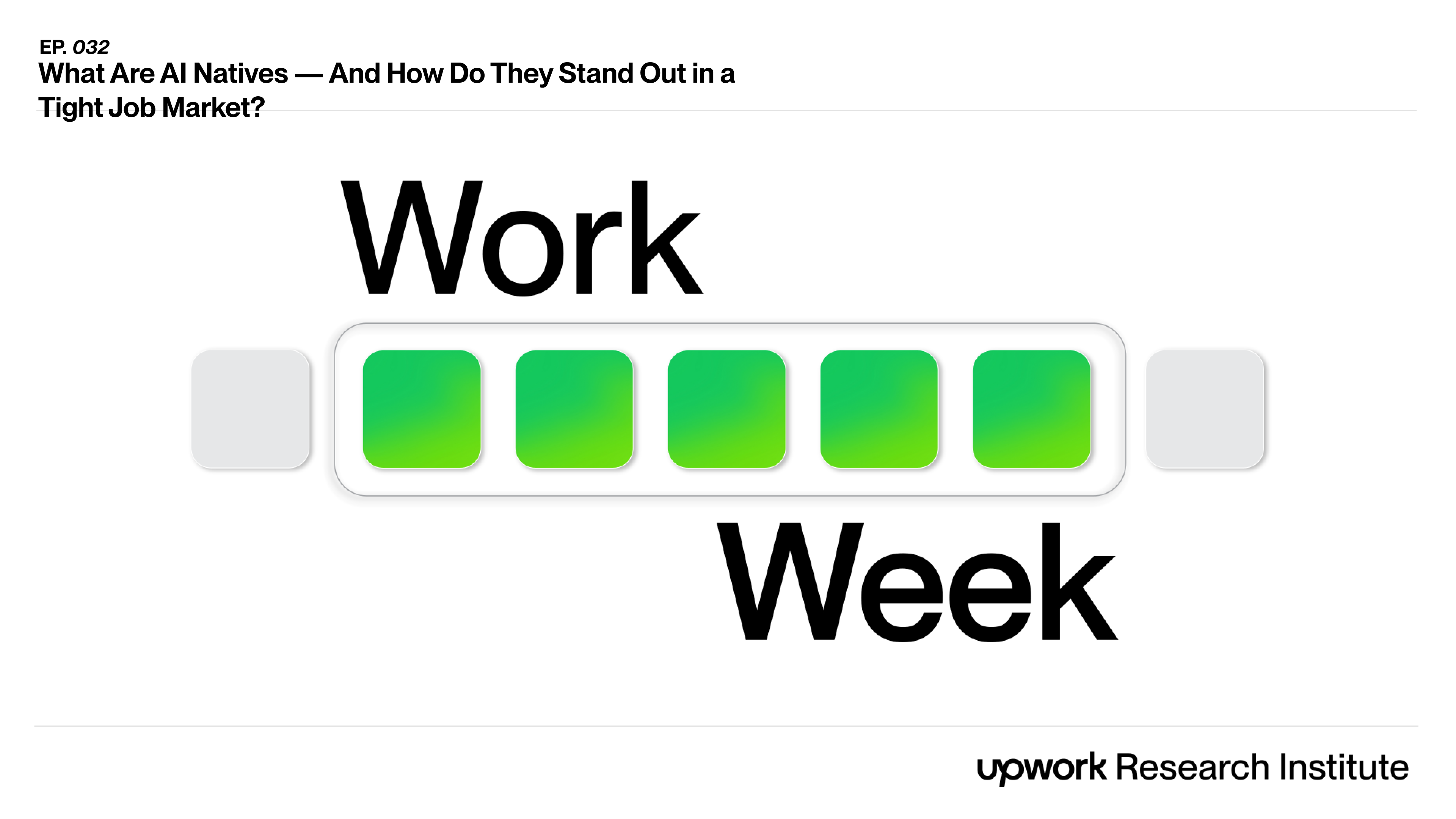


.png)

-p-500.jpg.png)

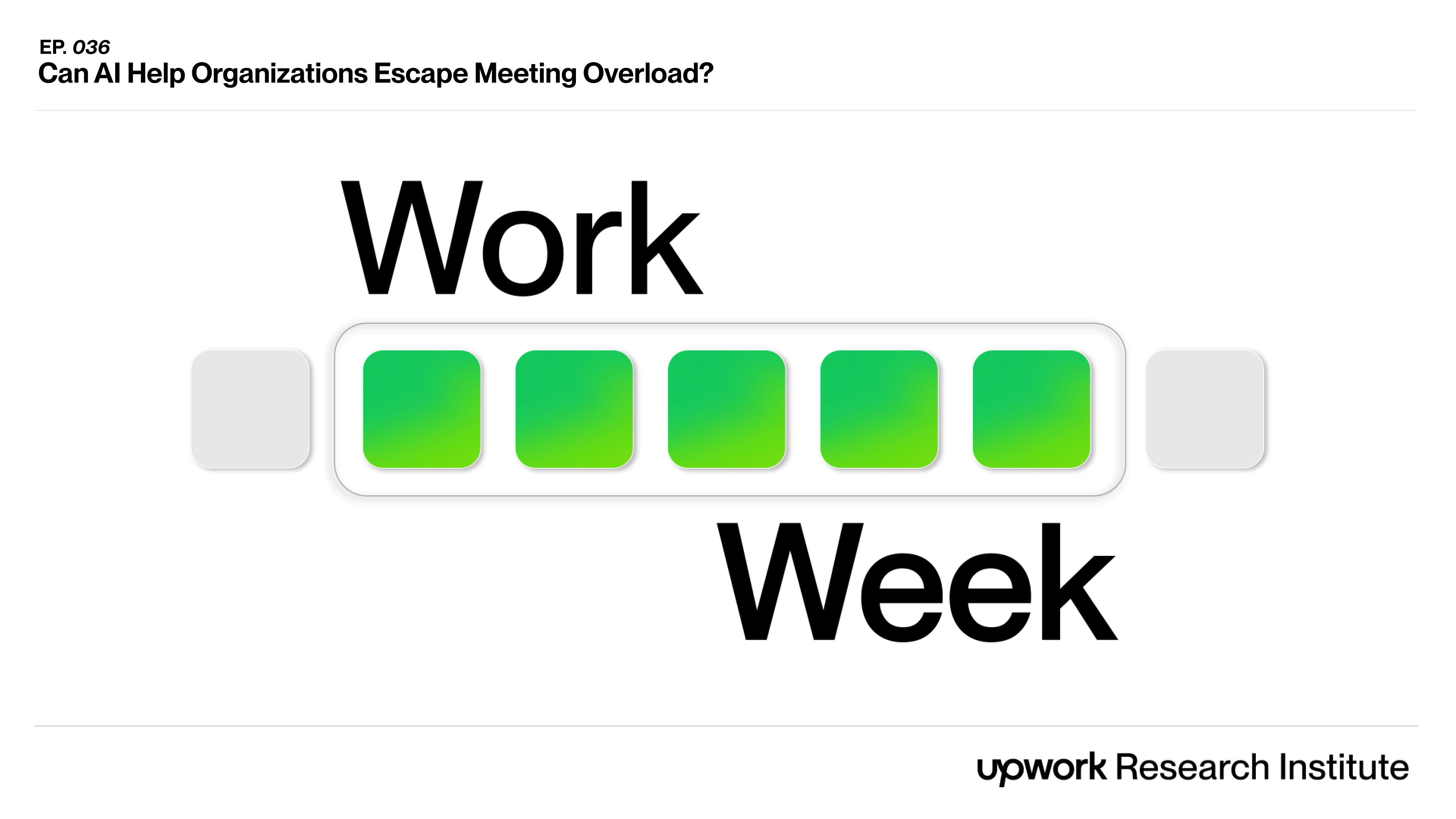

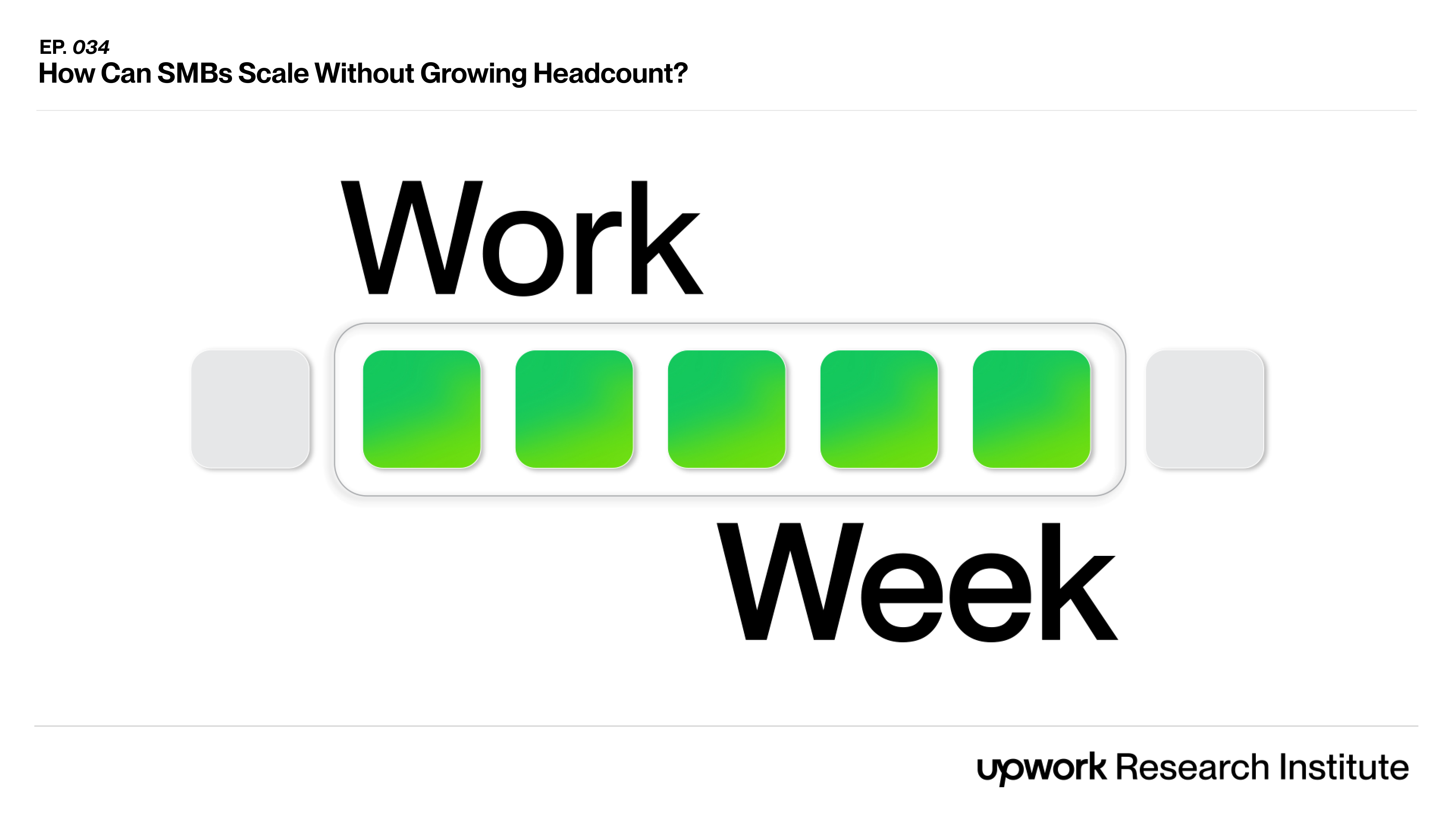
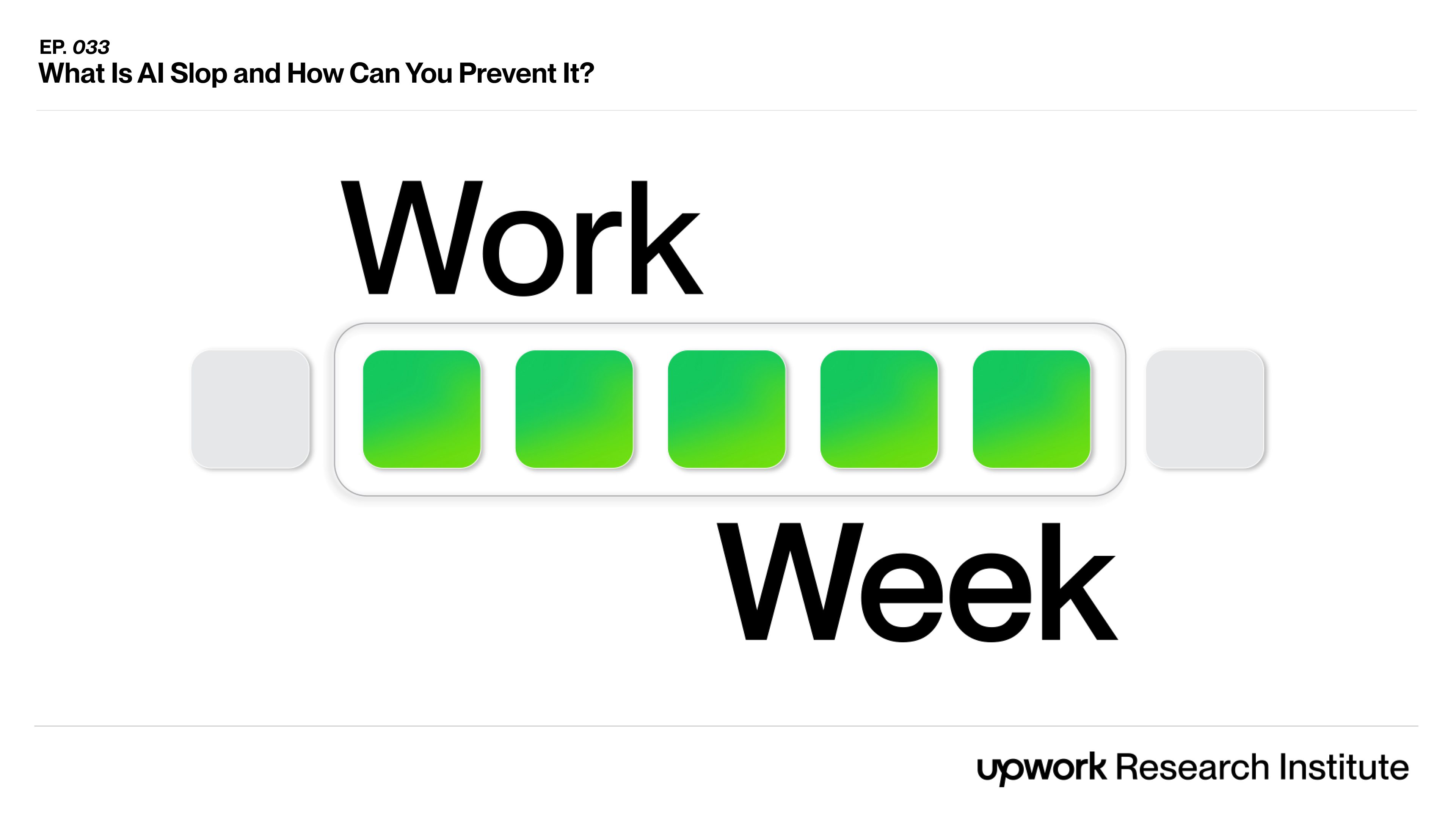
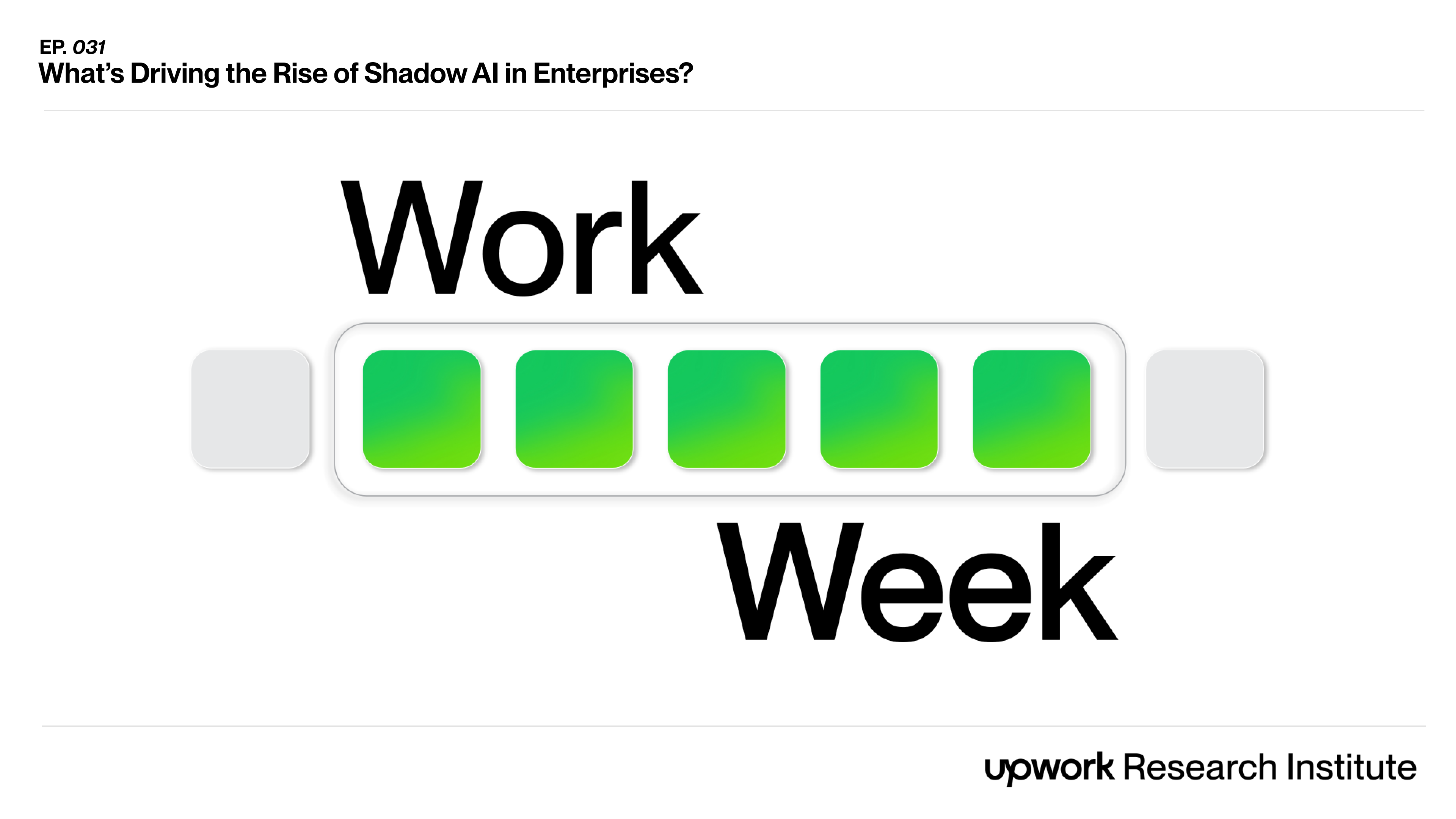
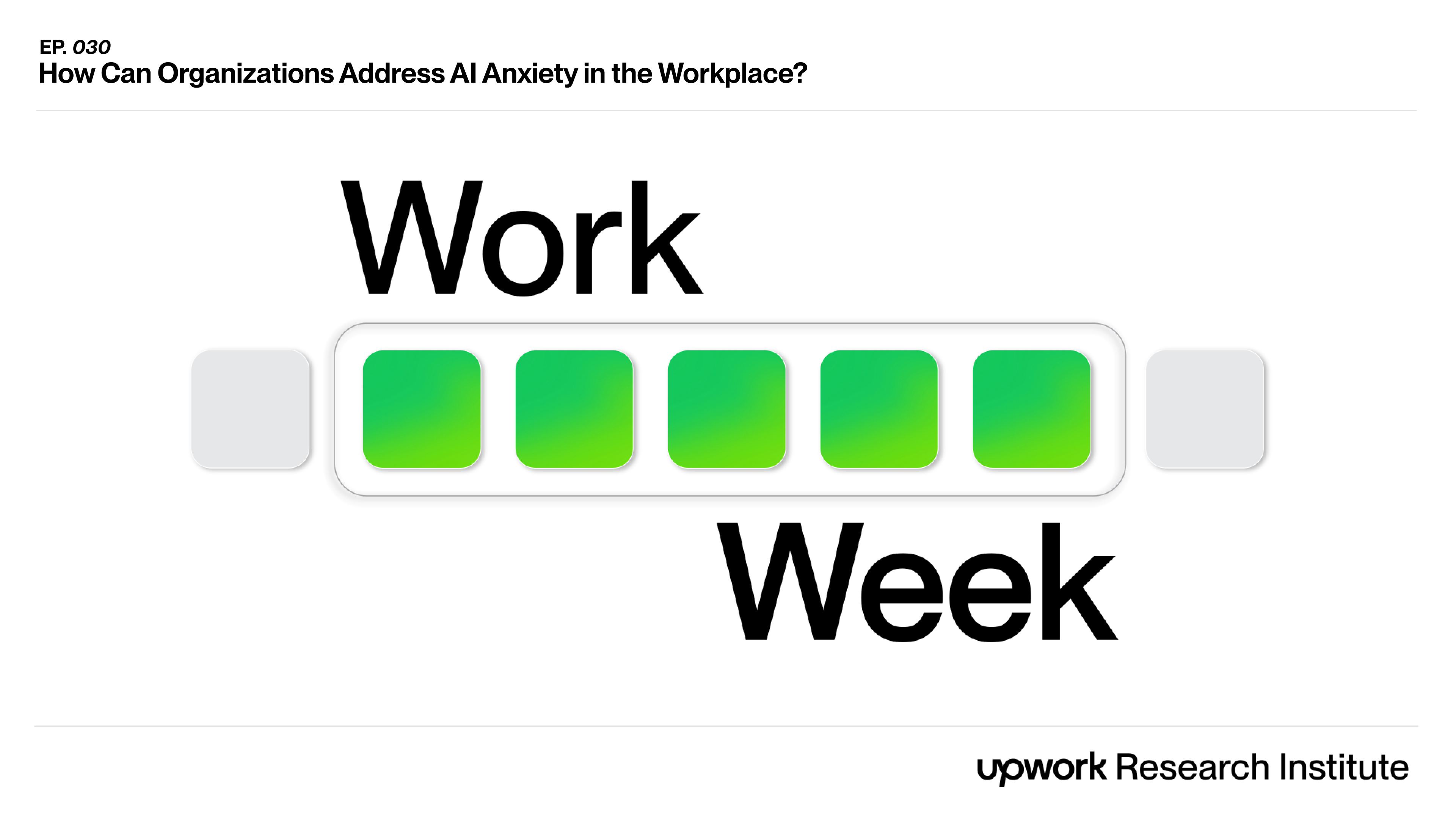
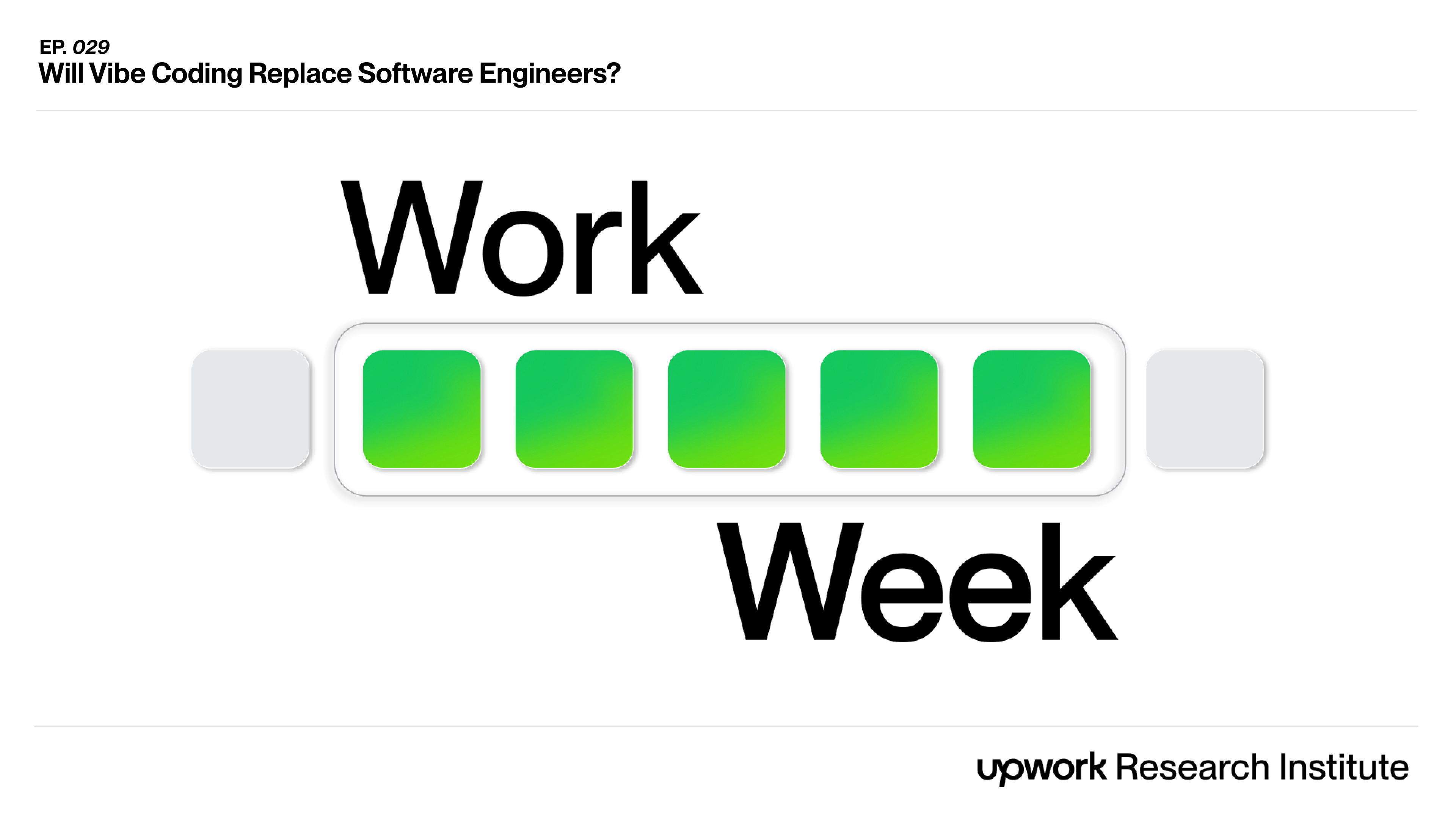
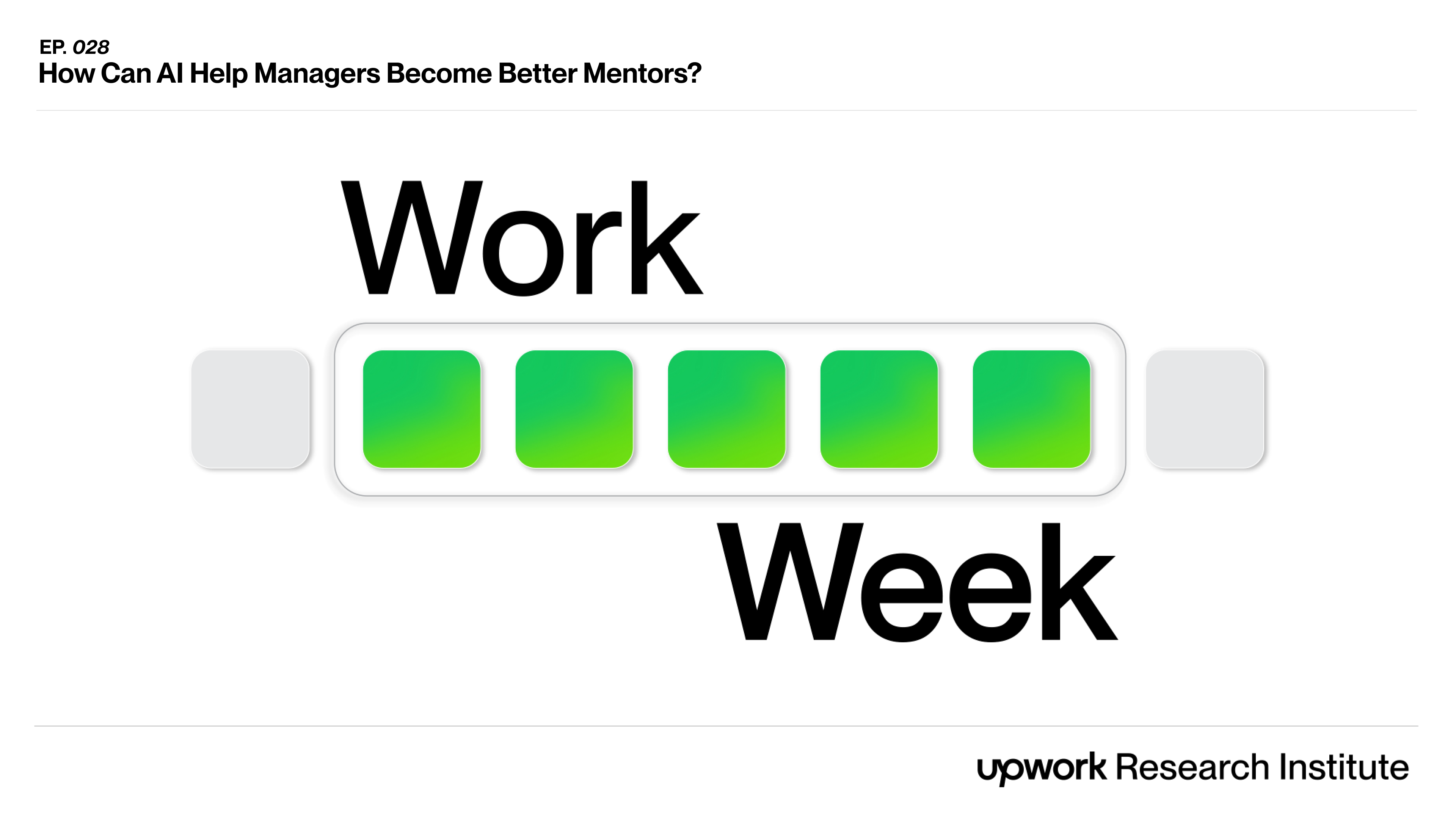

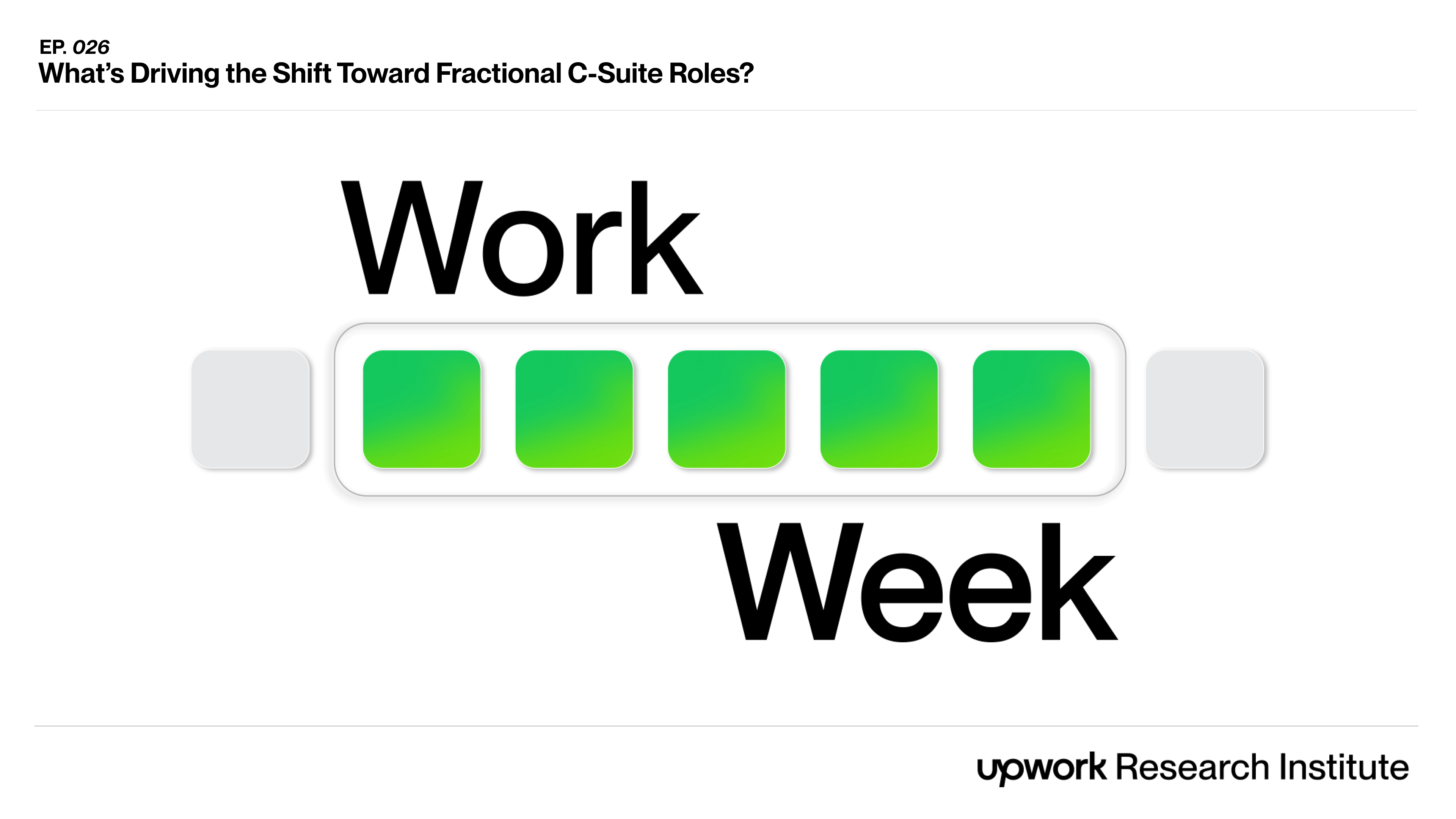
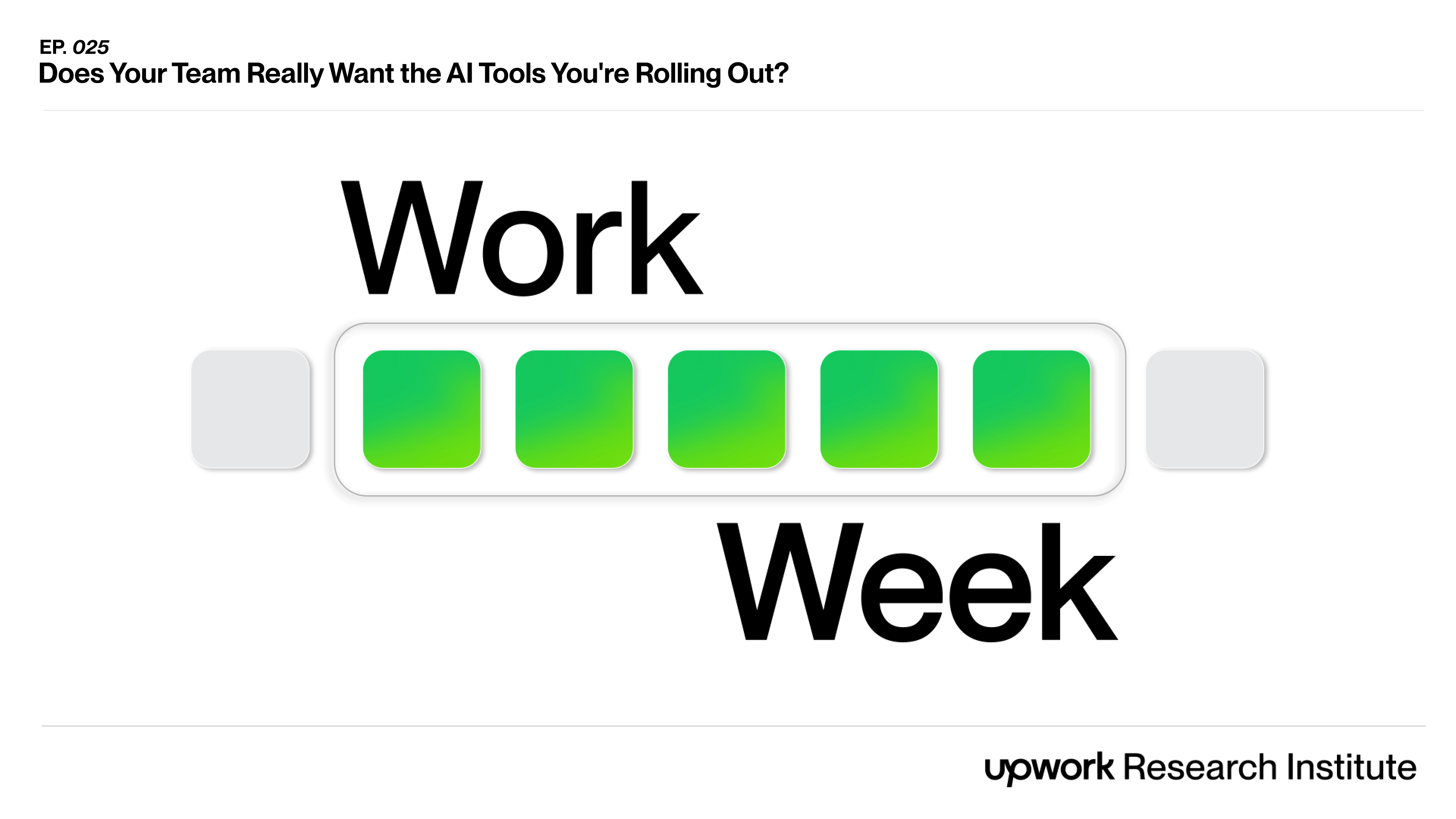
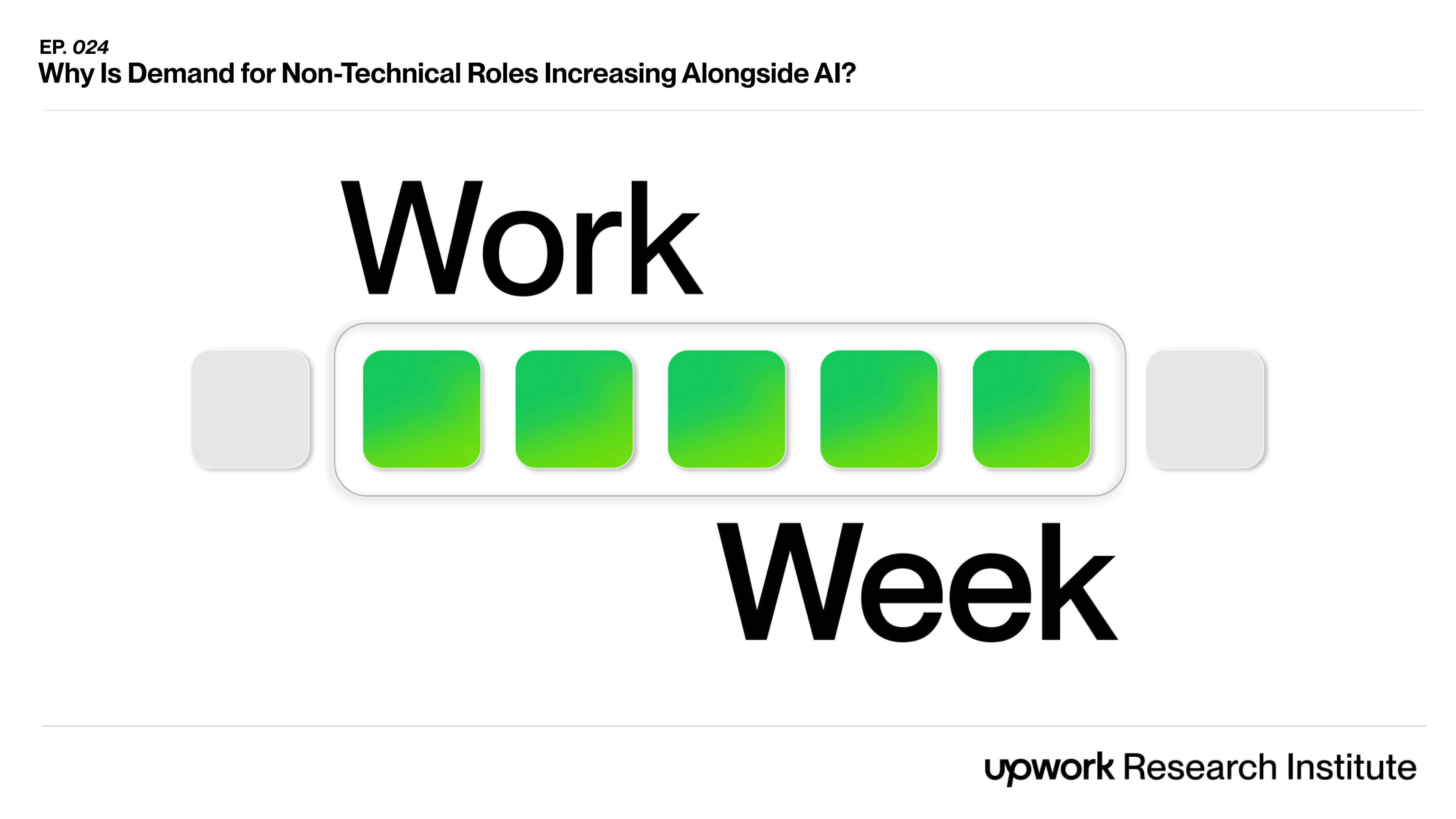
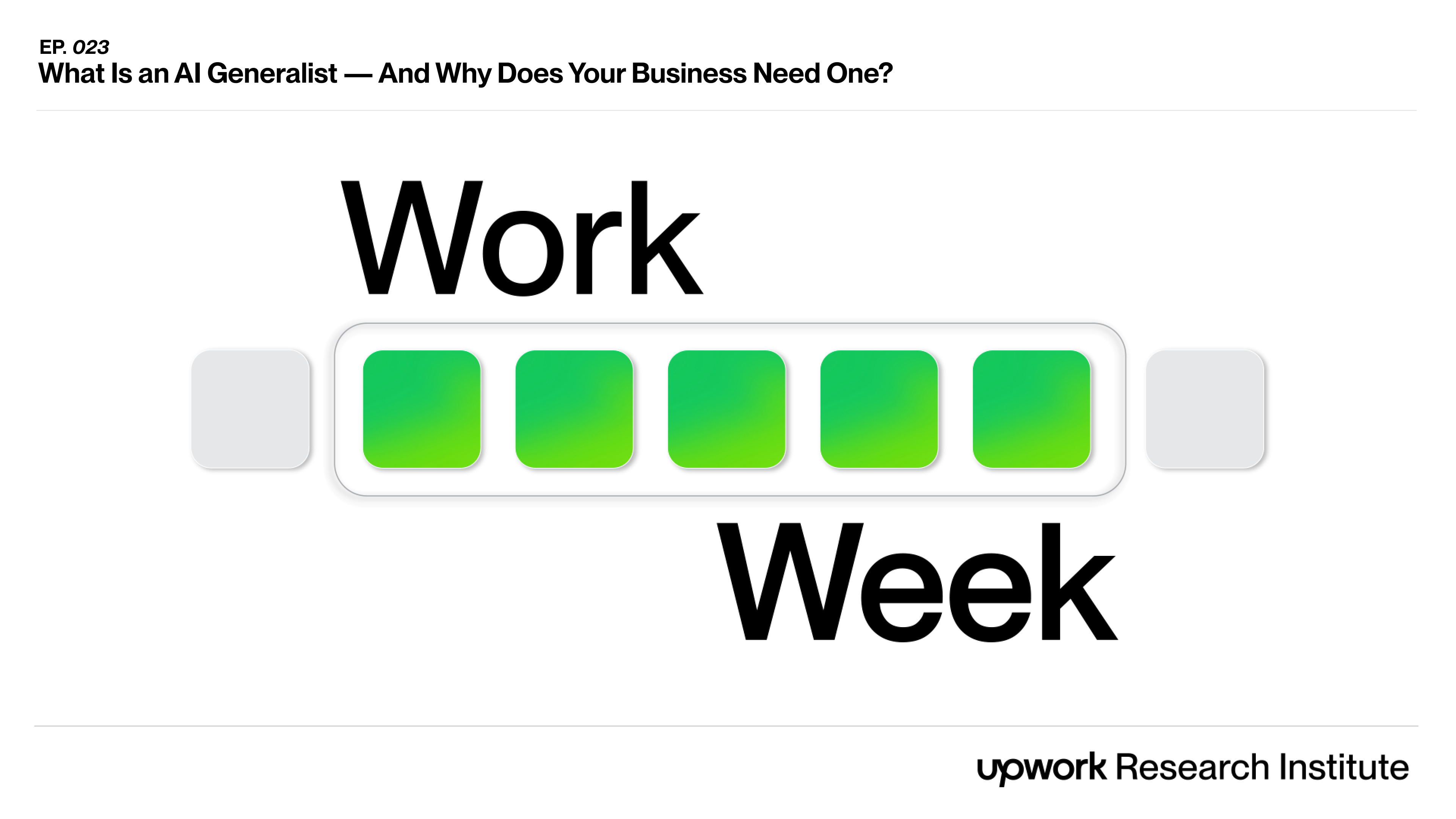
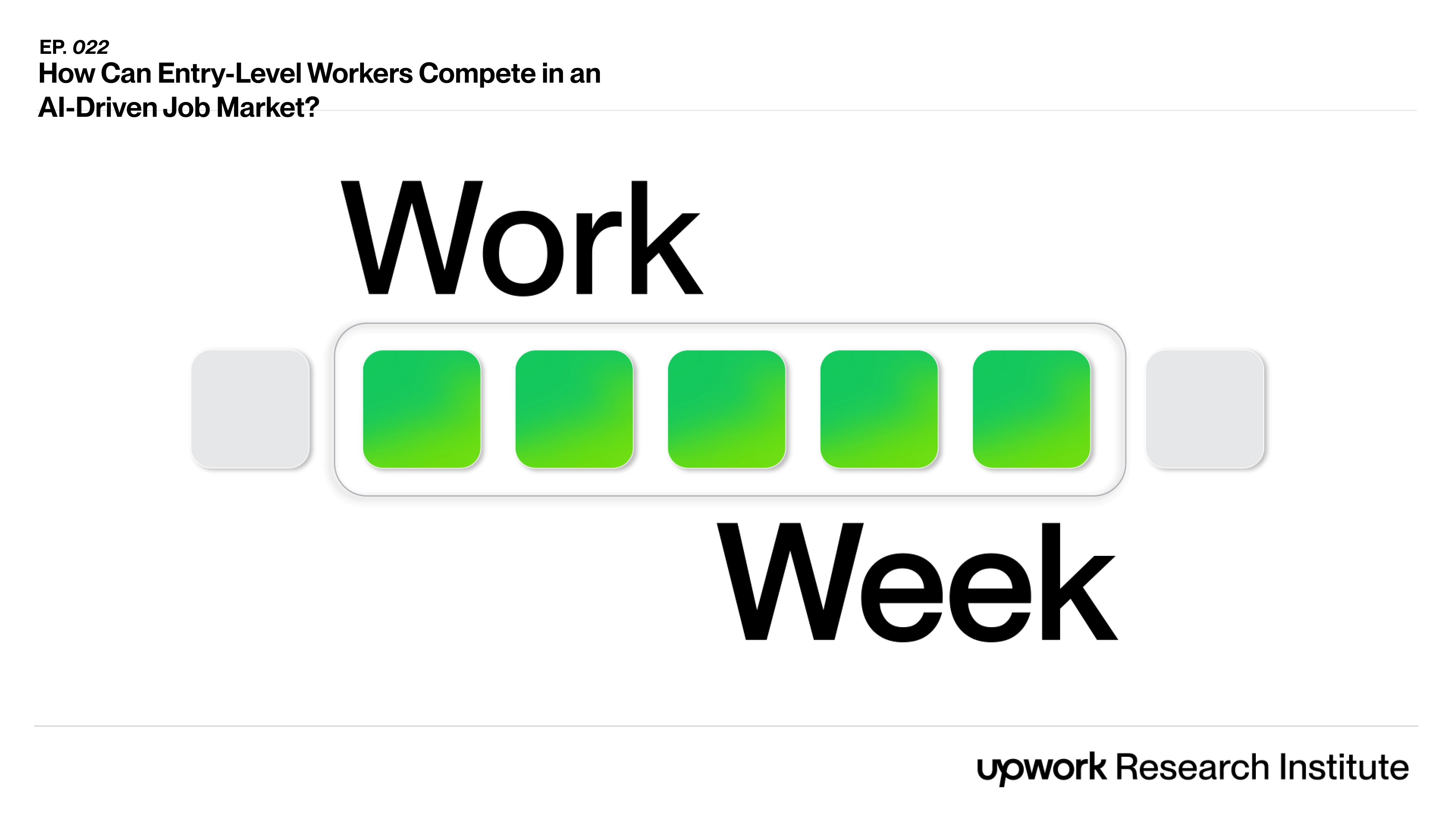

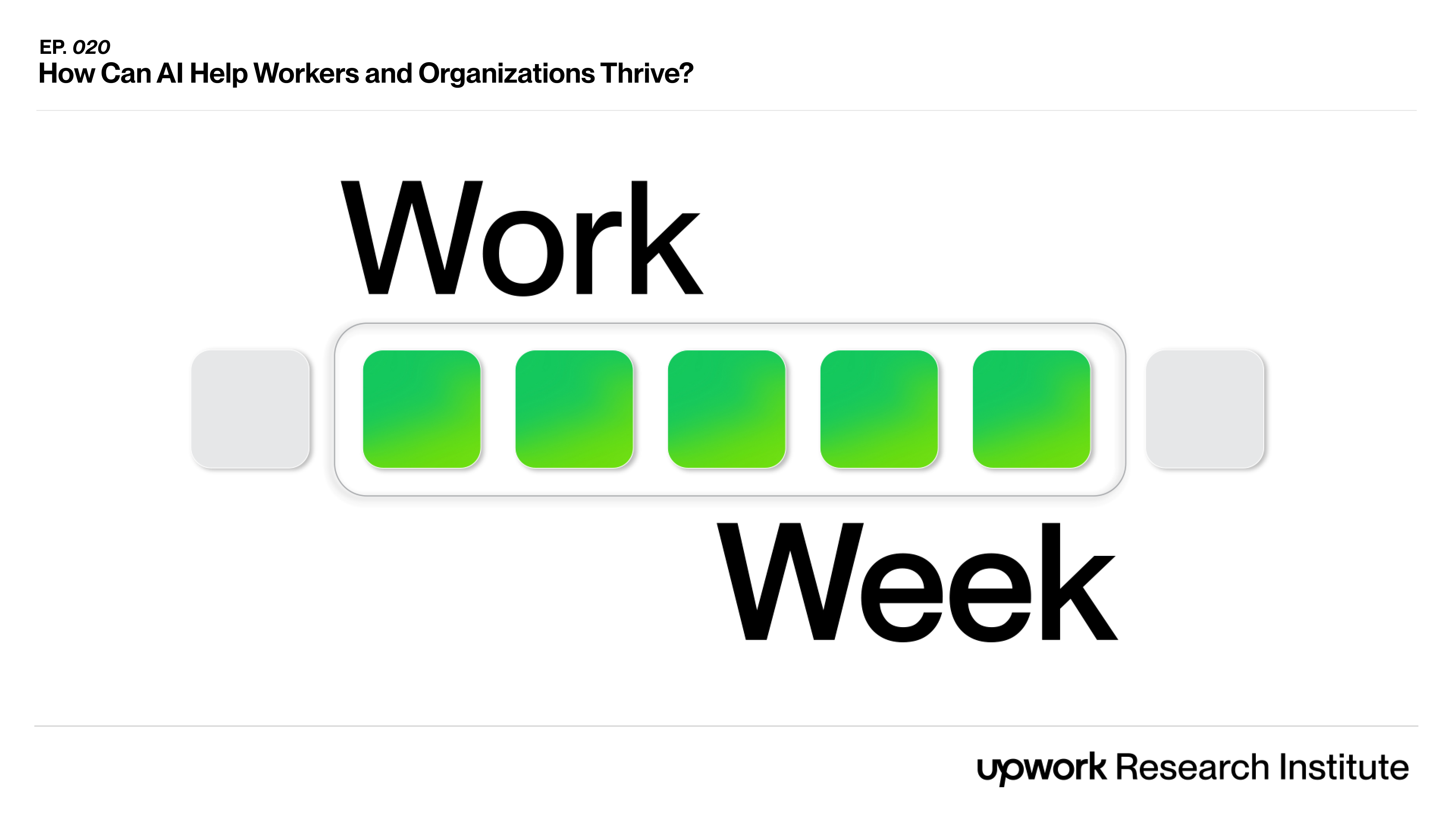
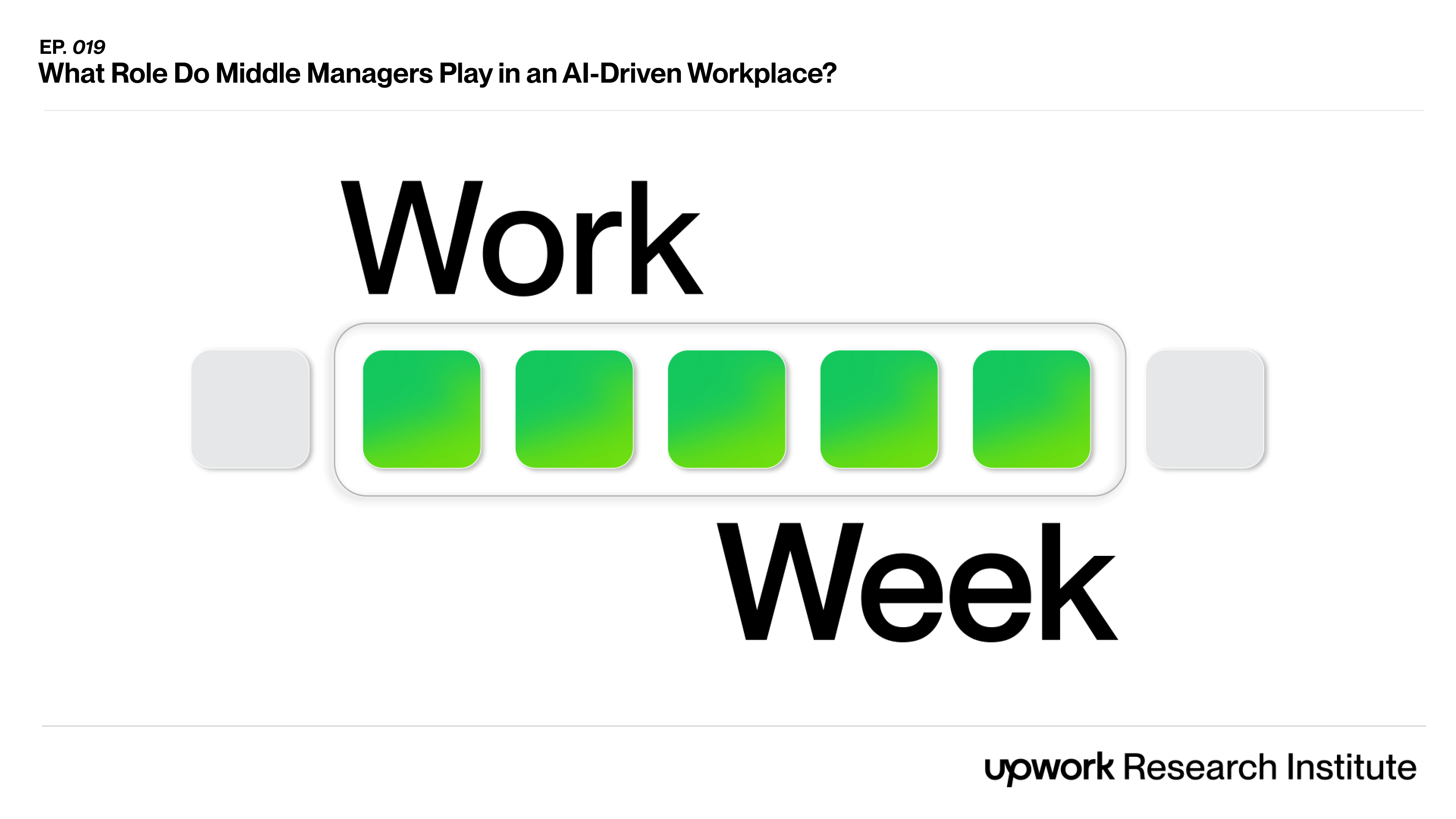
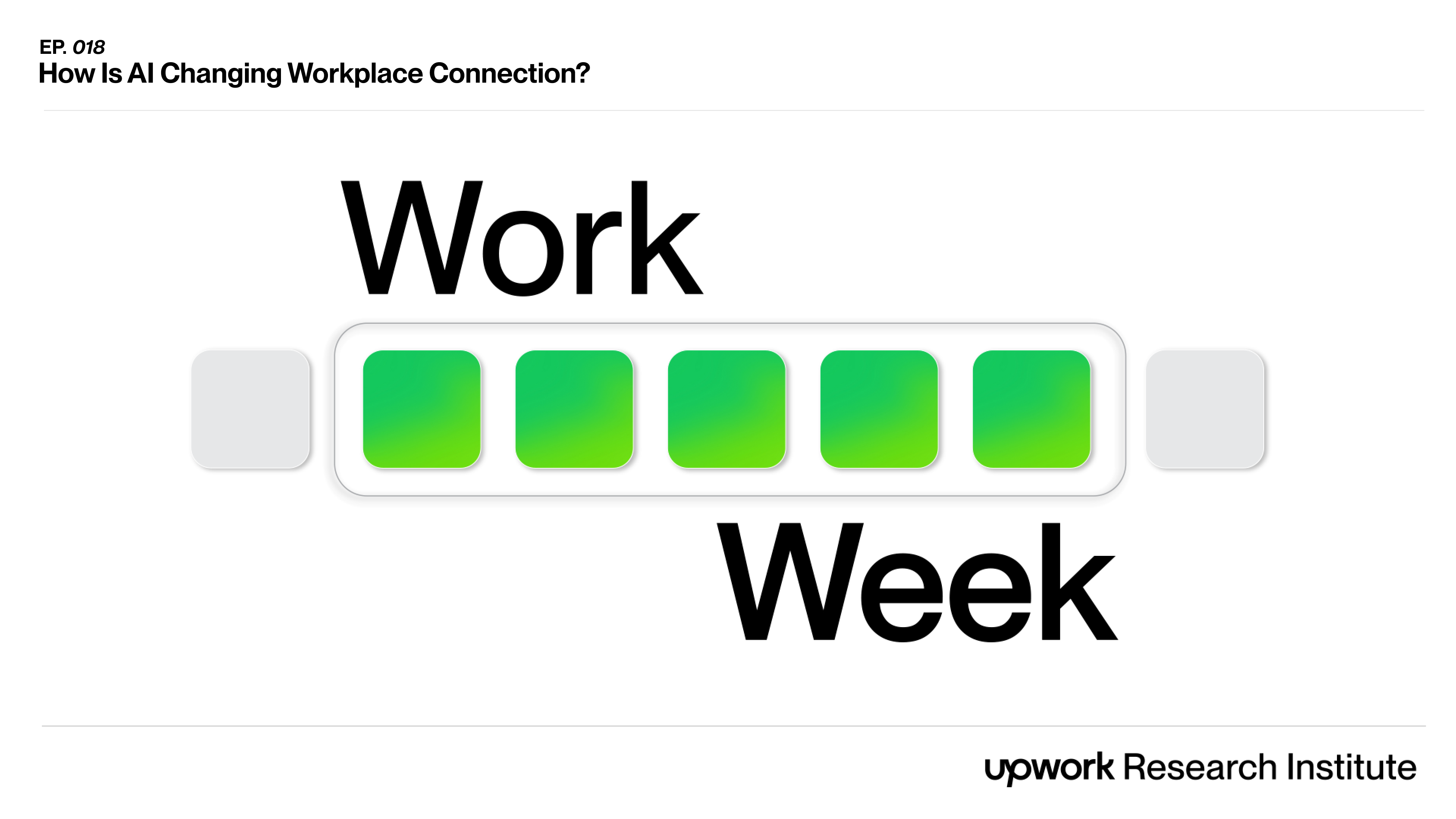

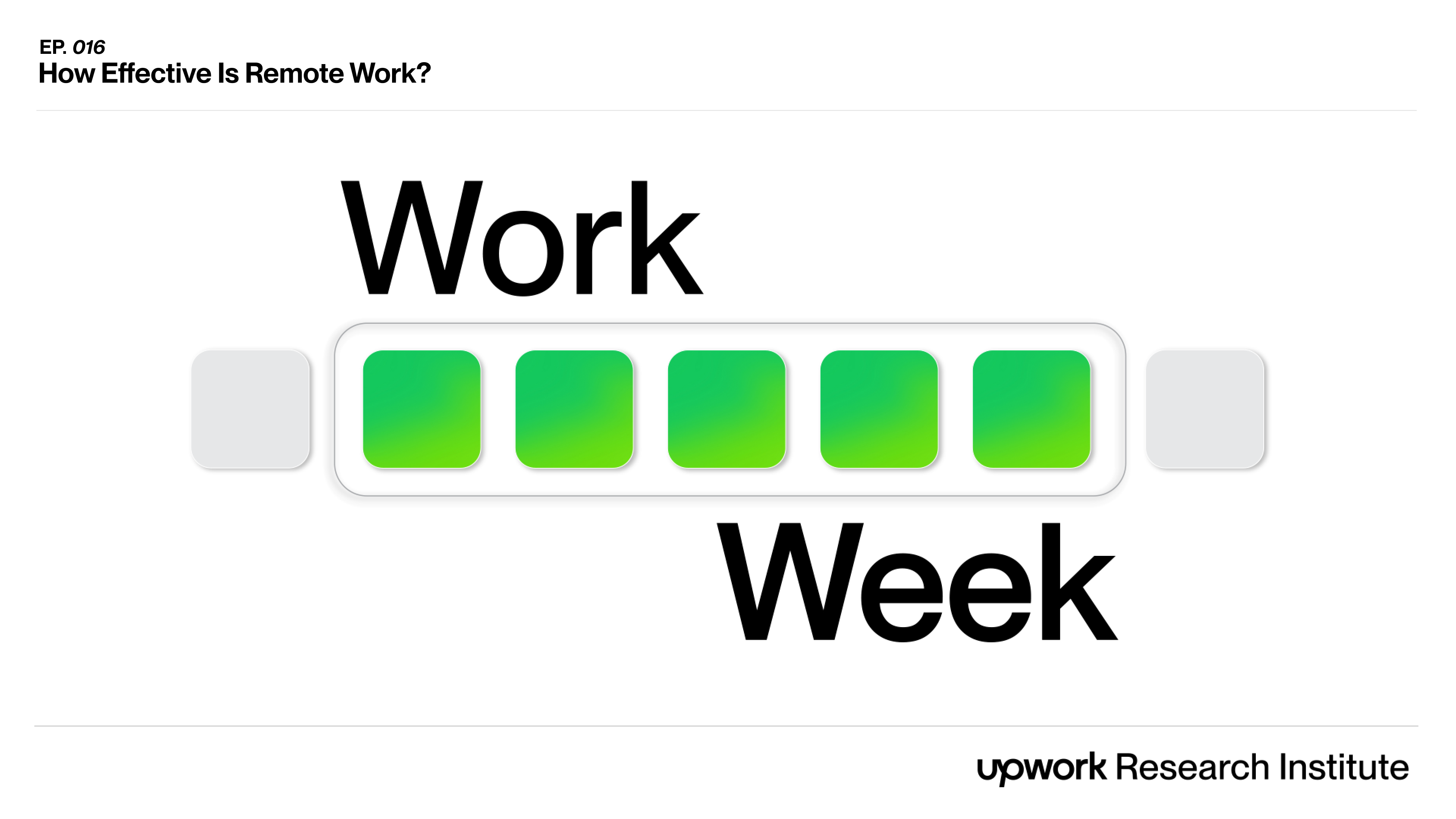
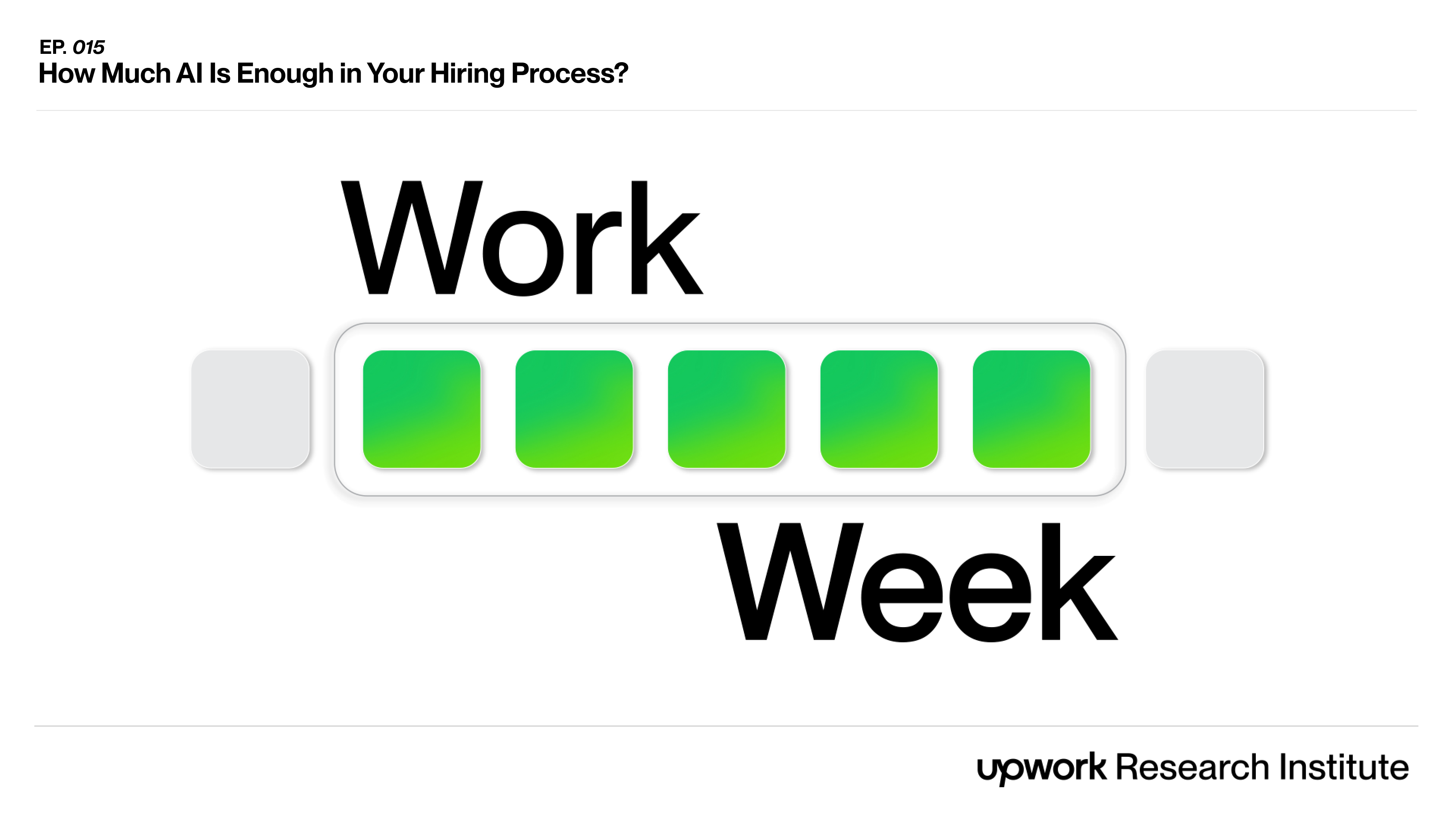

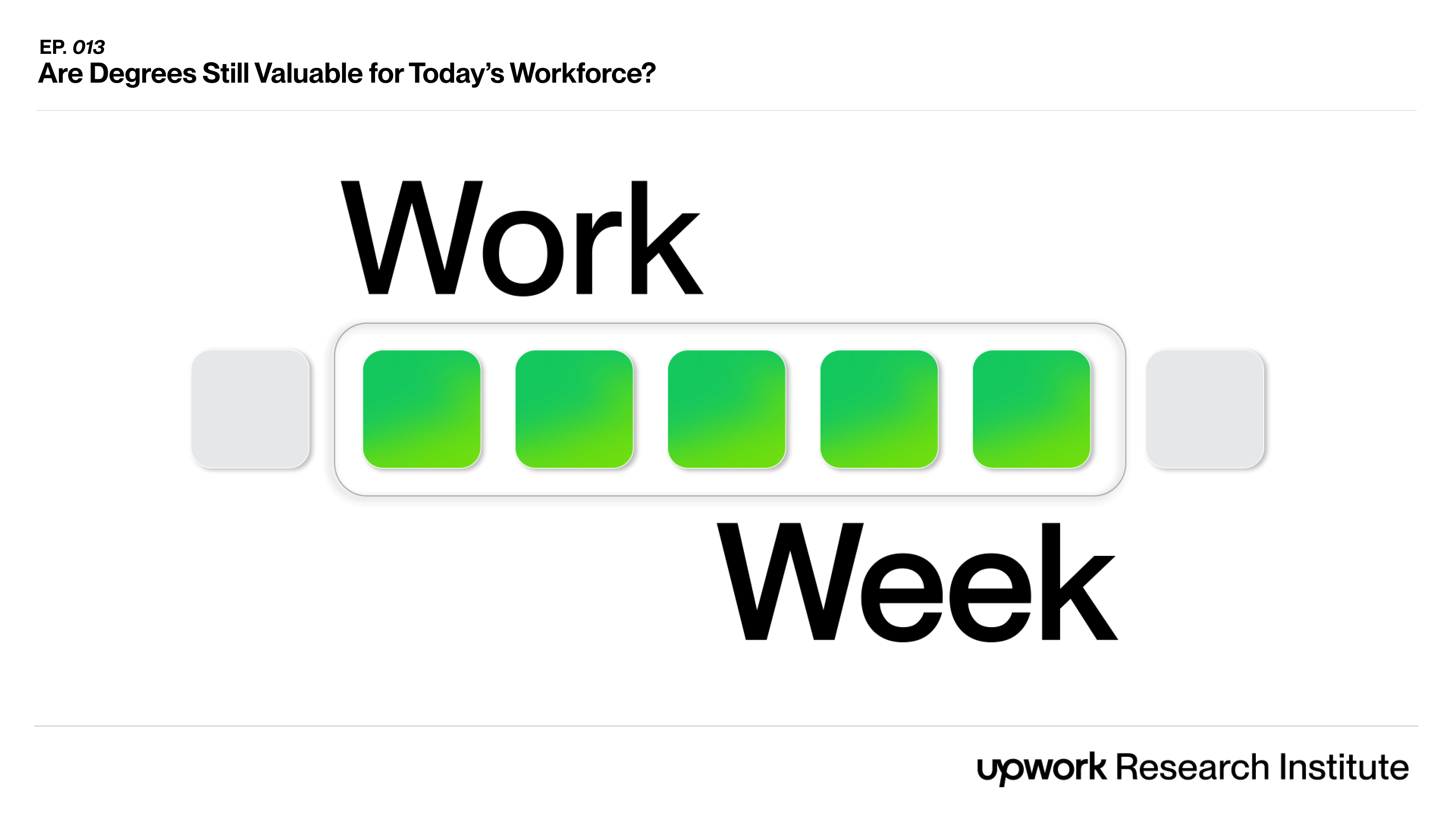
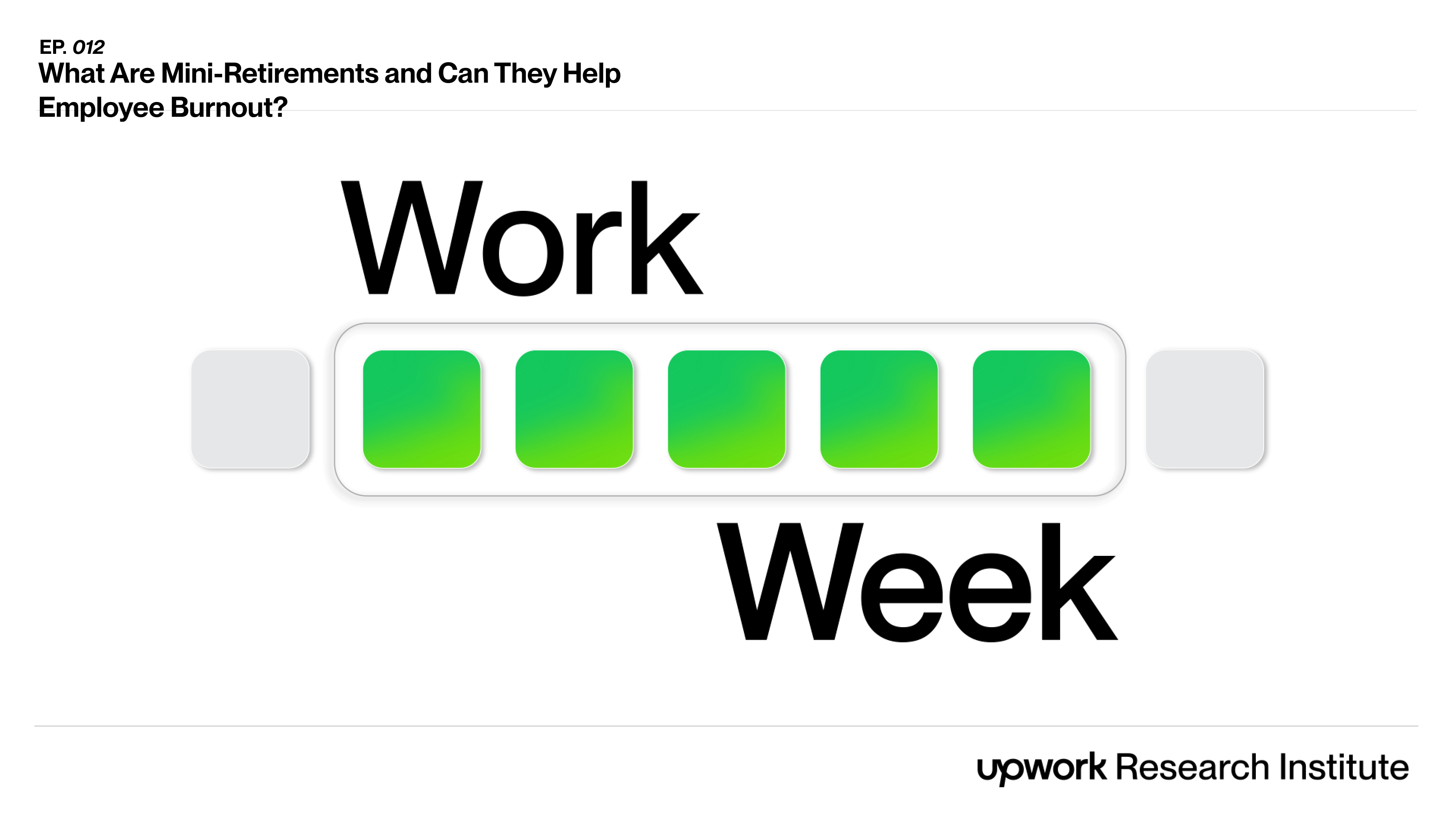
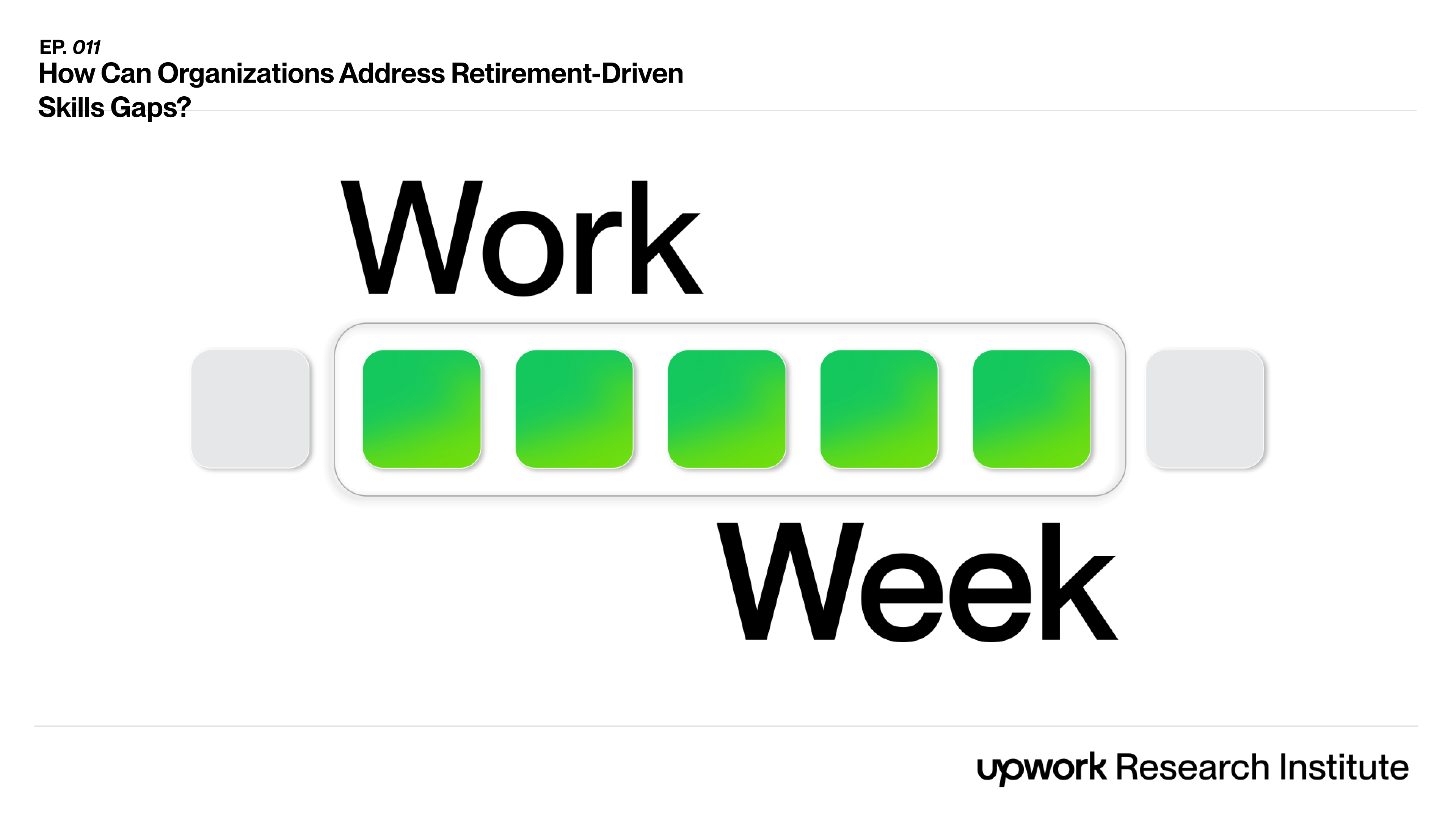
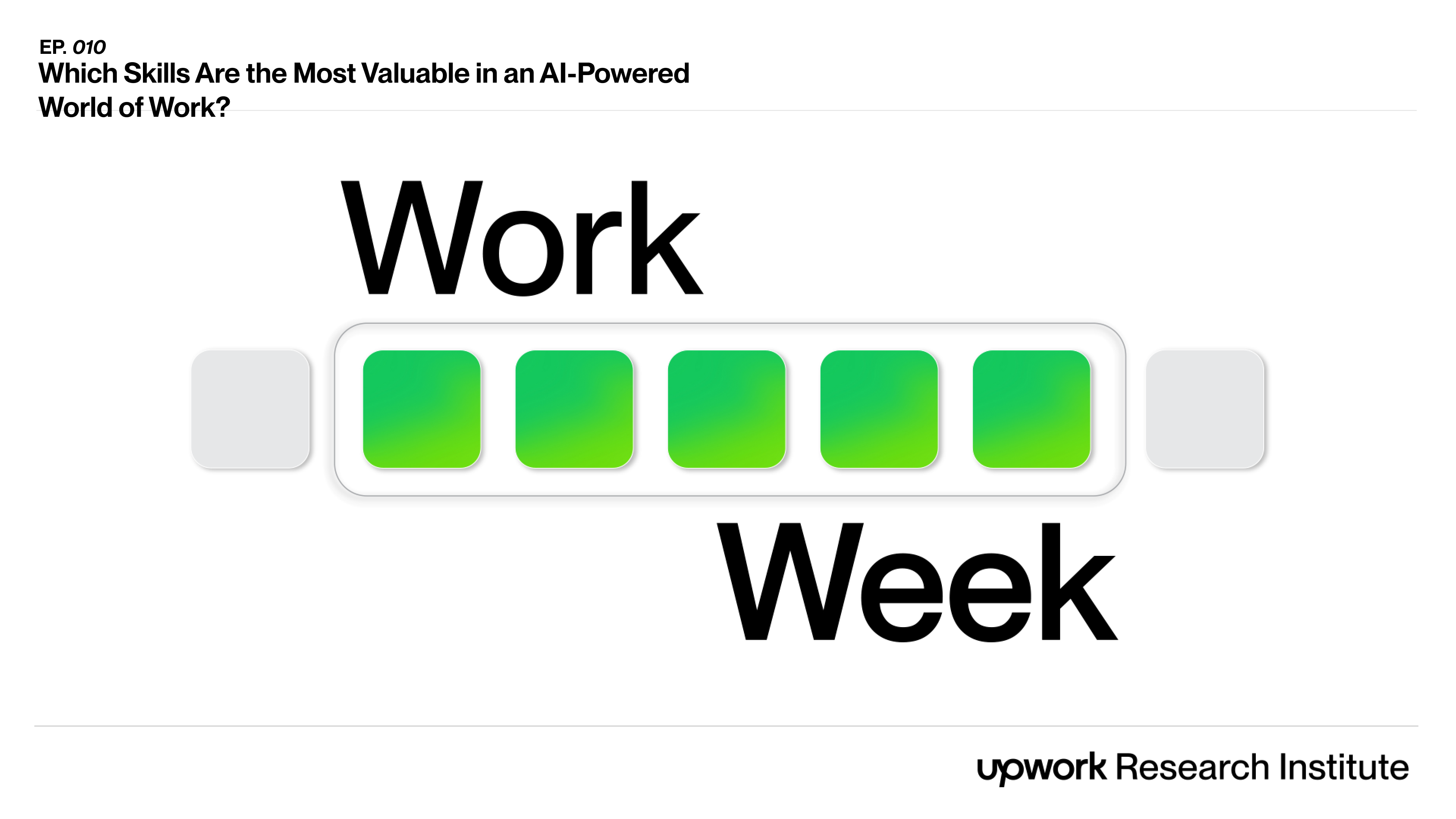
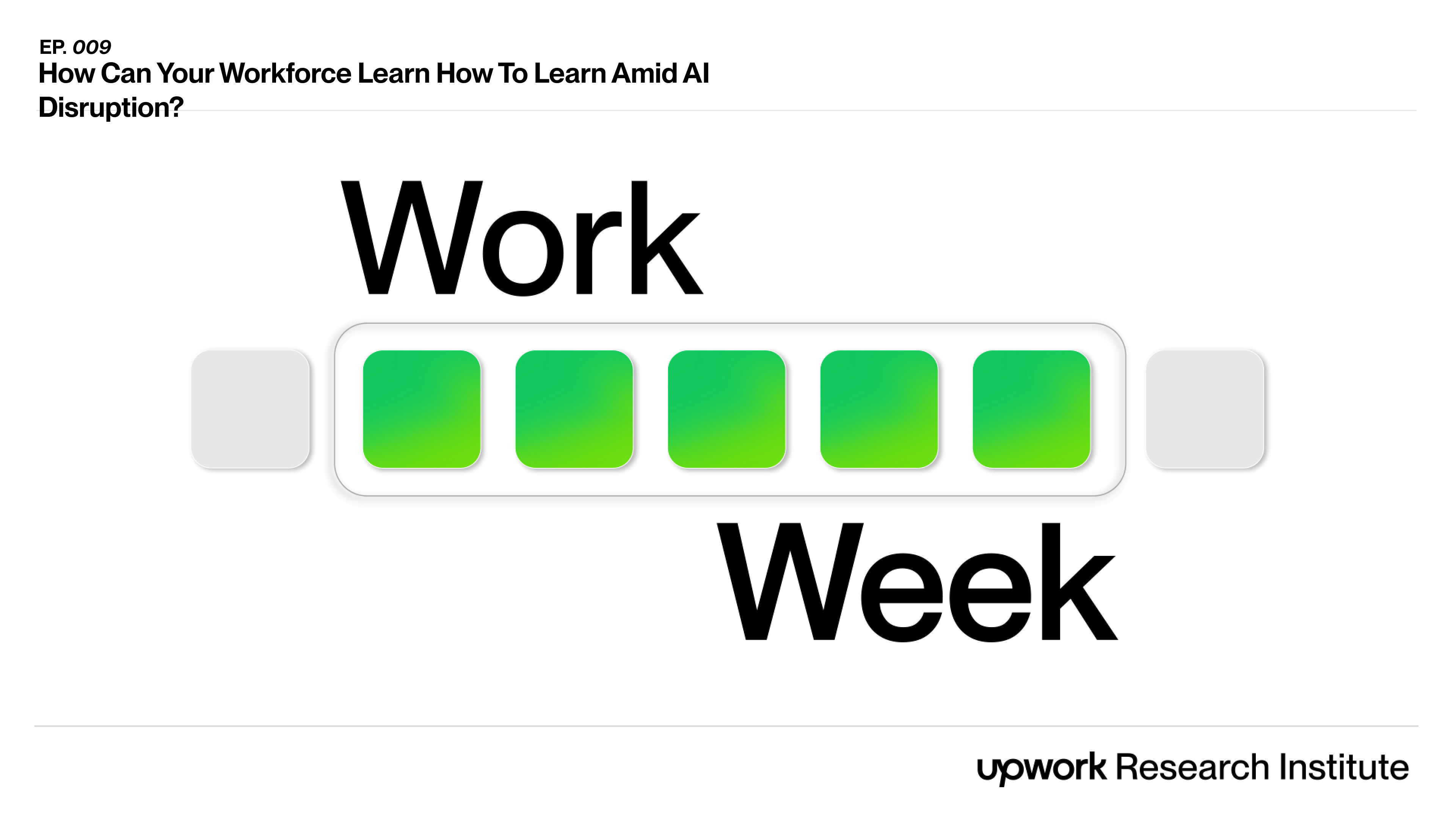
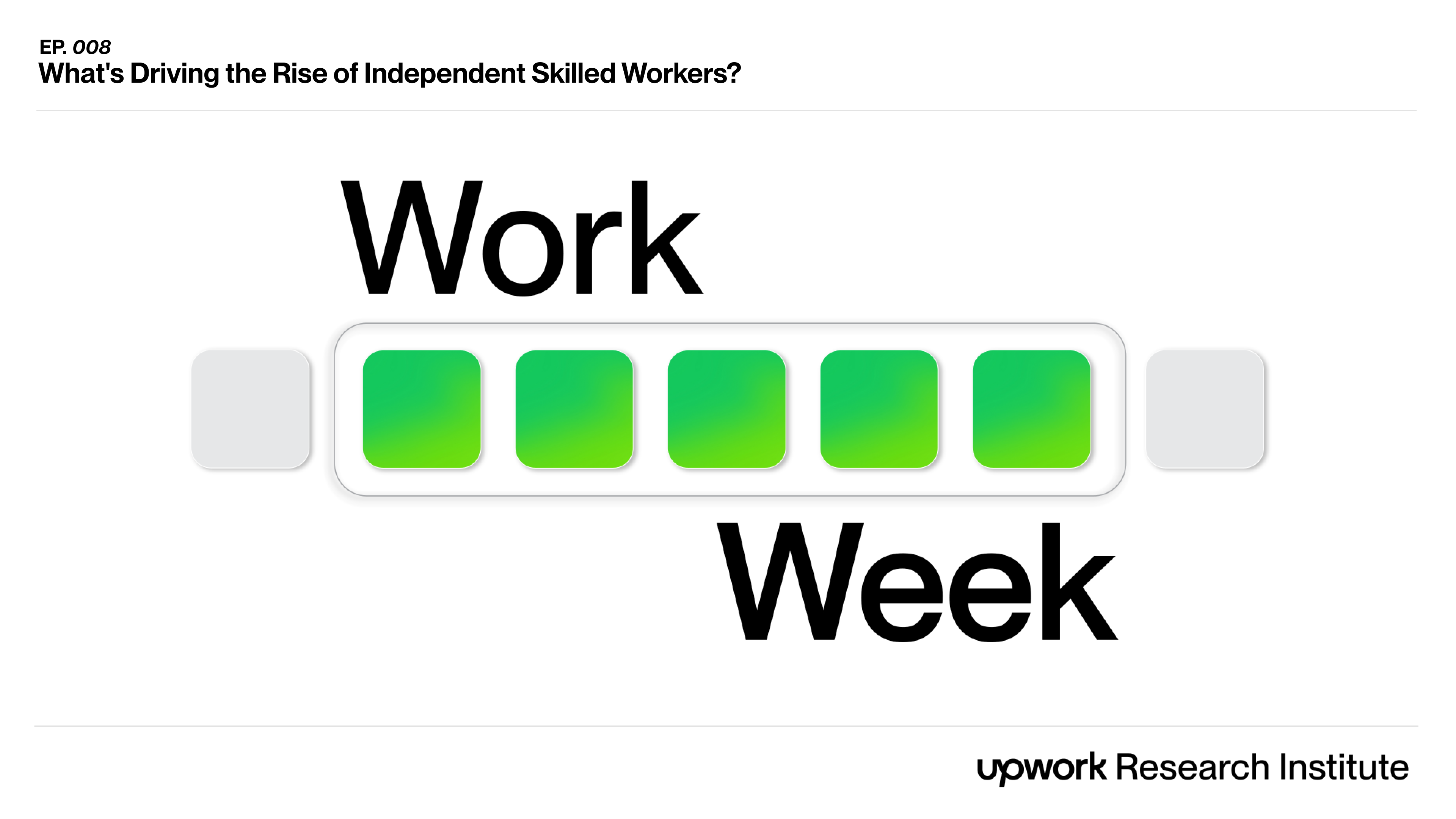
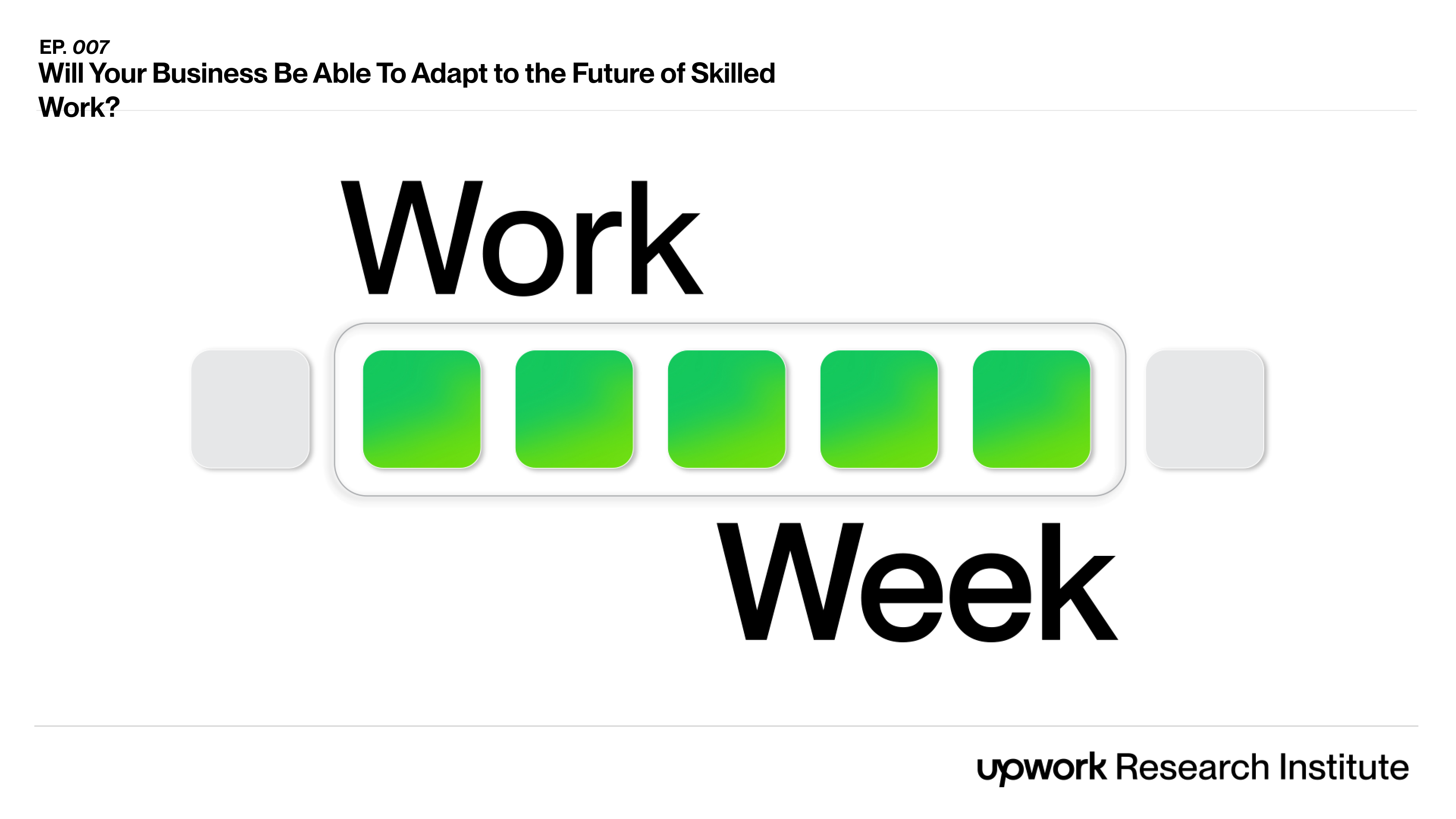
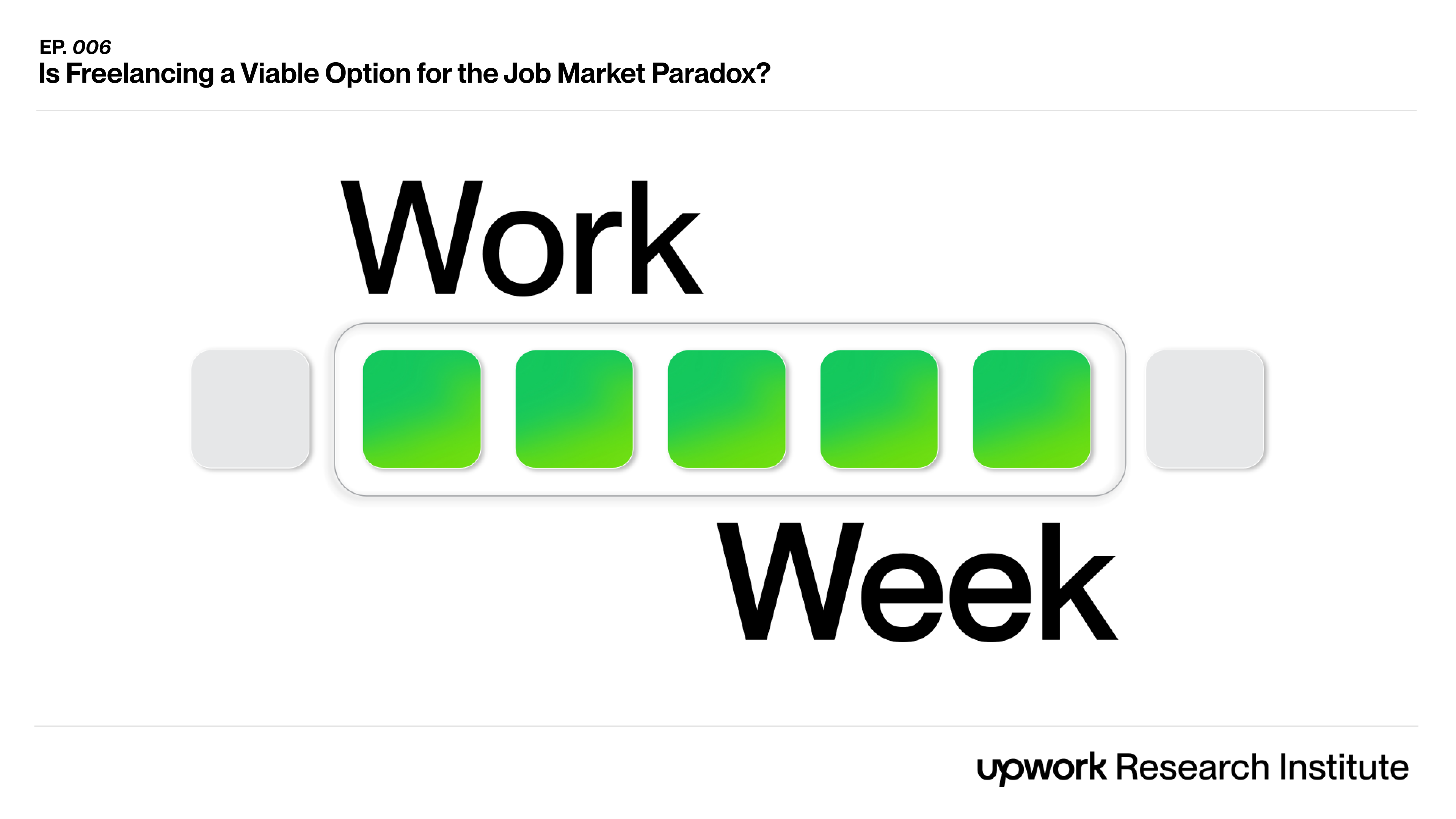
.png)
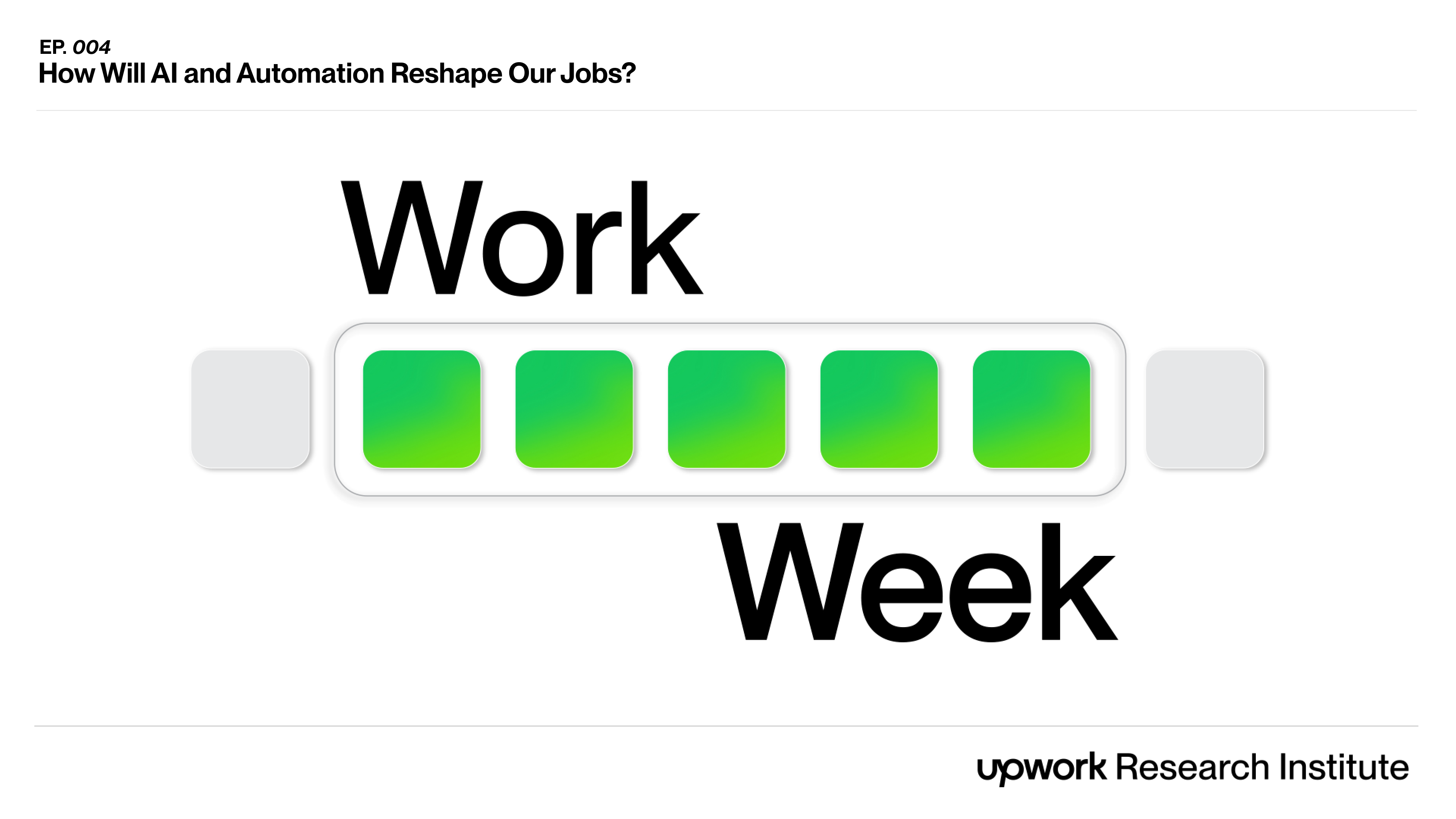

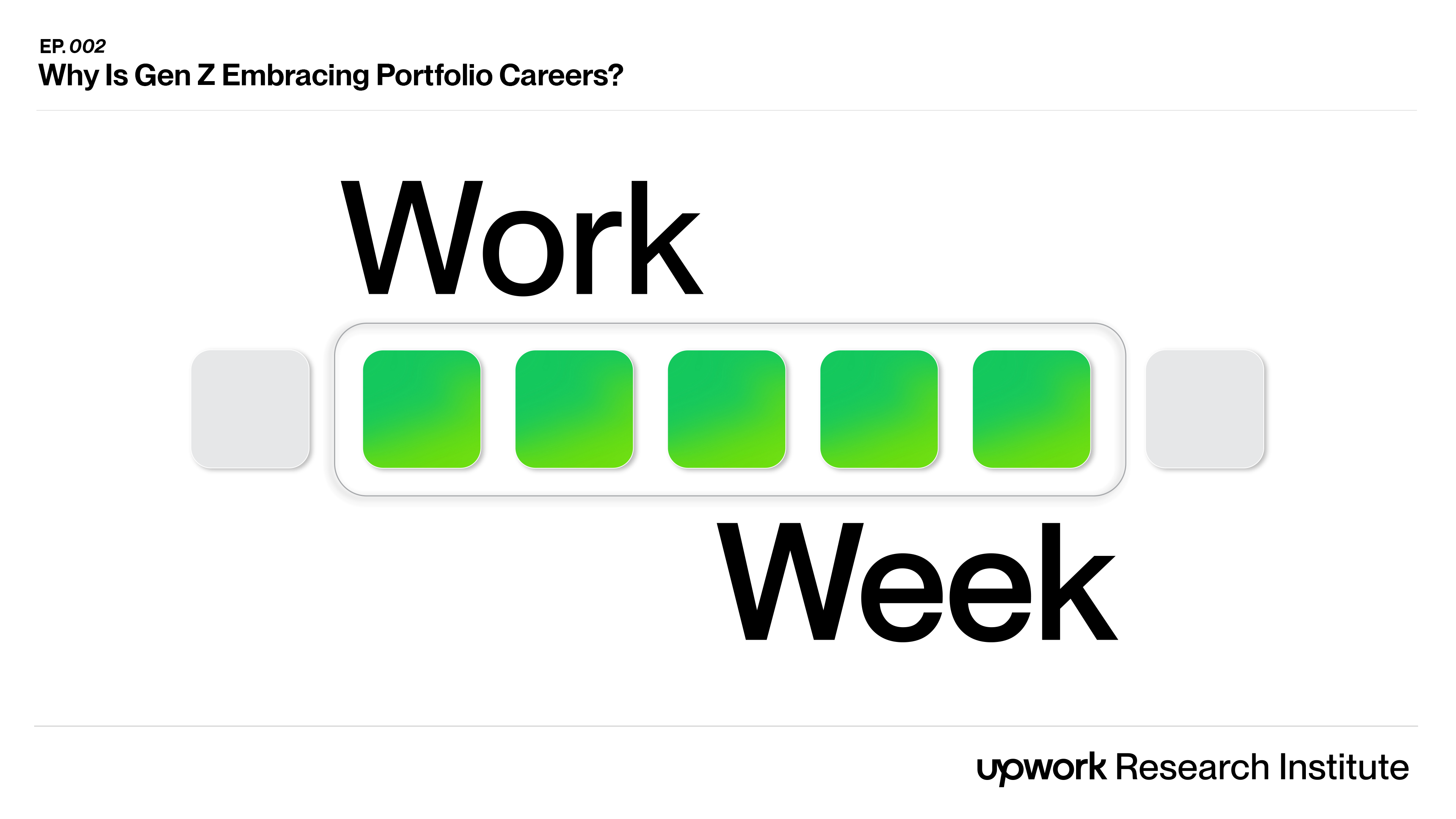
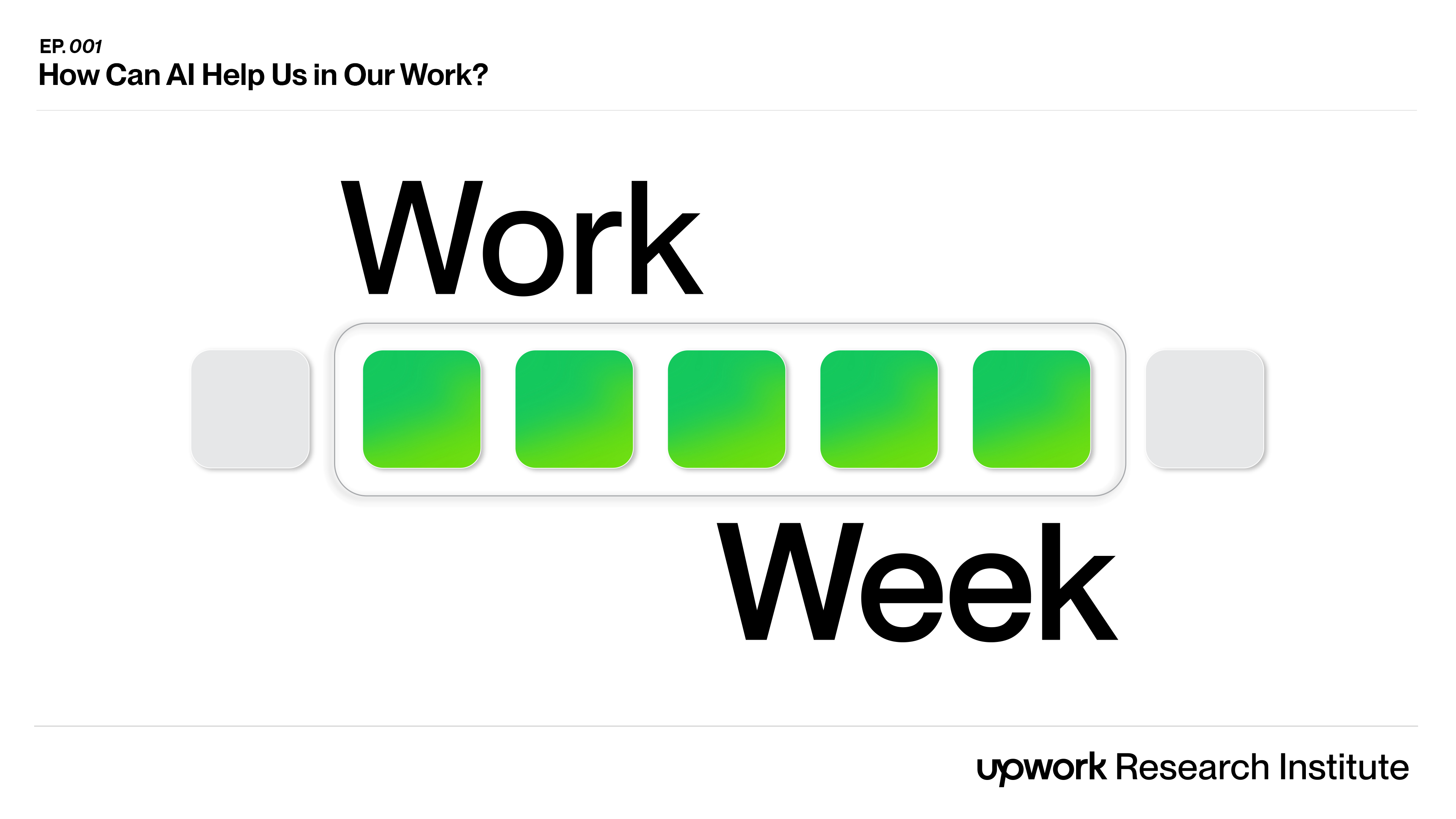
.jpg)